Author: admin
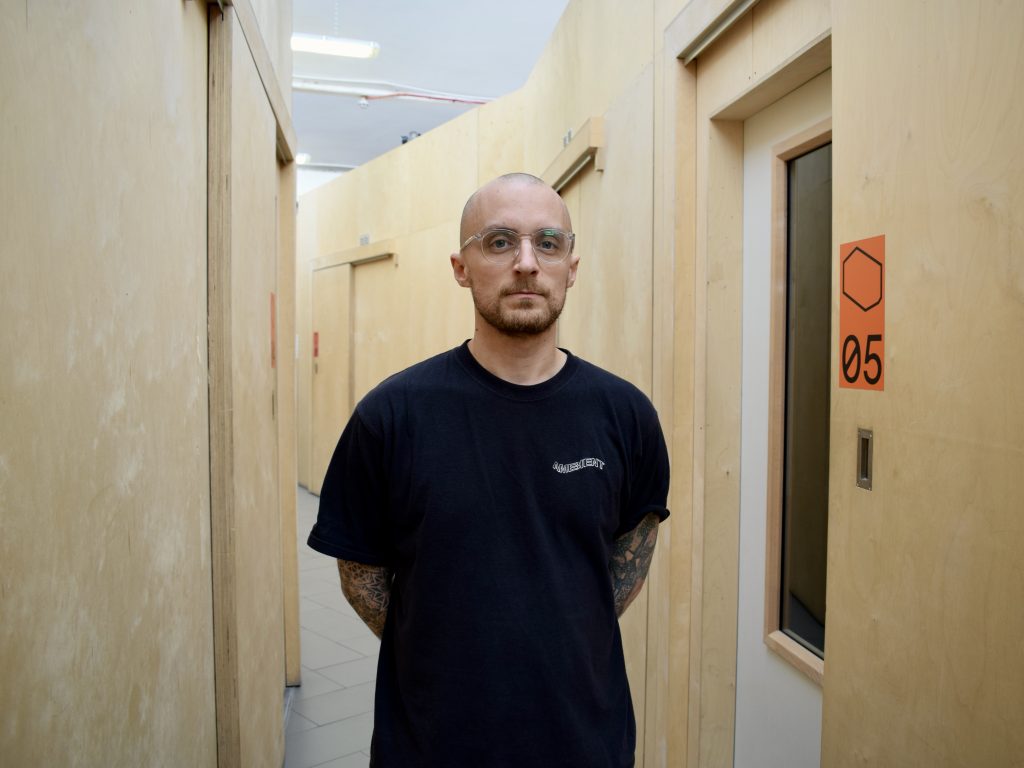
Danny T
For those that don’t already know, Danny Trachtenberg (Aka Danny T) is a seasoned recording Engineer and producer with almost a decade in the game. Danny’s work spans across music, film and TV, and includes credits with the likes of A$AP Rocky, Jorja Smith and WizKid.
A few weeks back, I was lucky enough to get an insight into the fine details of the tools and techniques used within his production process. Danny has been a pillar of the Ten87 community for almost 4 years, and In that time he has built up an incredible space filled with sonic rarities and all the modern tools required to execute his sonic vision.
We asked Danny to talk us through some of his favourite credits and the stories behind creating them.
Kojaque – Town’s Dead
Beyond the fact that Kevin (Kojaque) is a beautiful and hilarious man, this was a massive pleasure to work with him on. We ended up taking a bit more time to work on this, as we found it worth revisiting some of the production ideas and sounds to make everything tie together. Plus Kev wrote a whole new song in the middle of it all.
The album tells a story, so it was really important for us to make sure the narrative thread worked. The challenging part was making all of his stylistic influences from 90s rap, to punk, the LA Beat scene, soul, to jazz all feel cohesive. This was also the first time I put my custom Neumann summing mixer to the test. I use it on everything now.
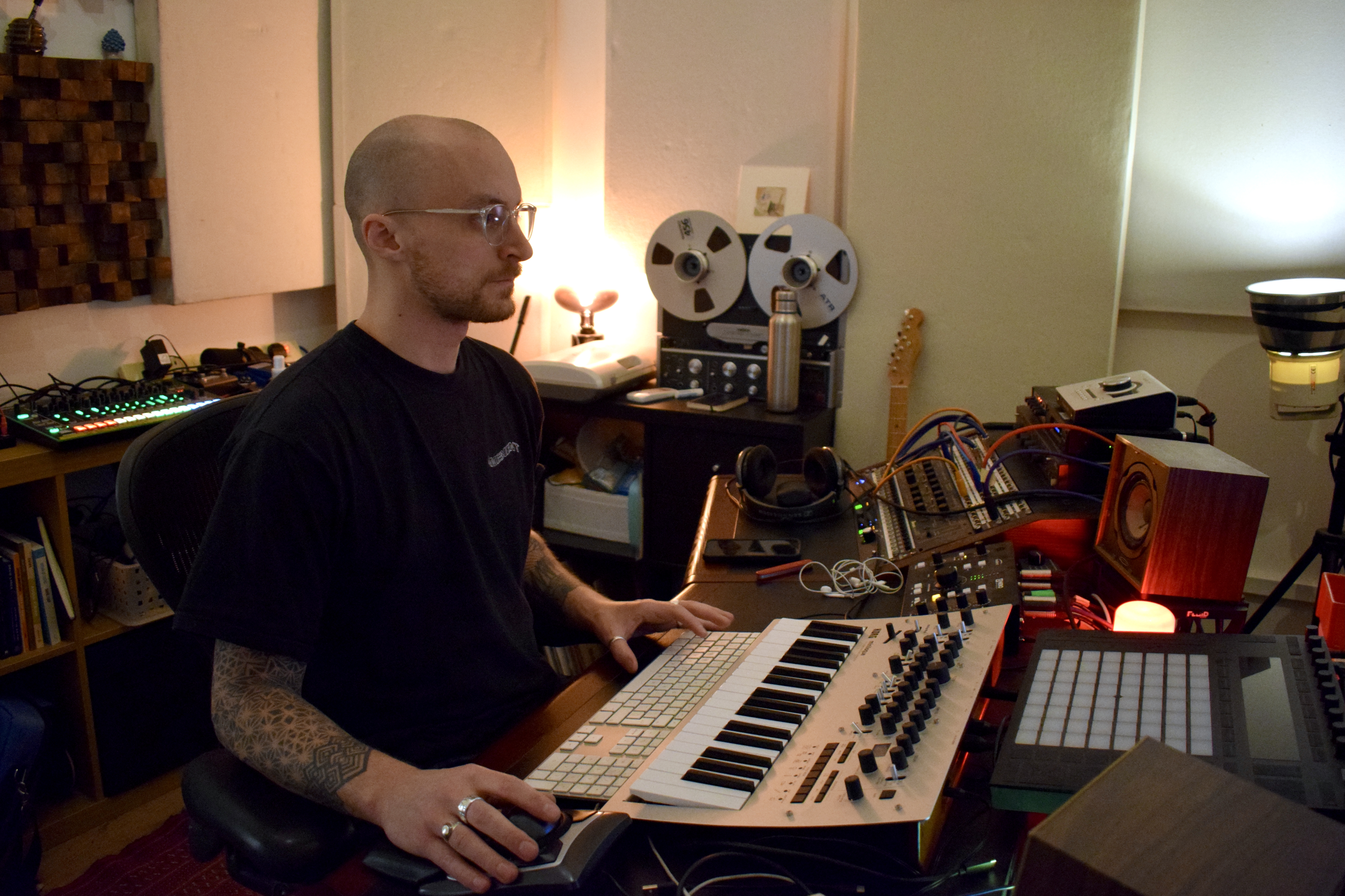
George Ezra – Shotgun
I recorded the Horns Section and Drums for producer Fred Again in Mark Ronson’s old studio at Tileyard. Fred and I go way back and whenever I’ve gotten to work with him, it’s always such a brilliant lesson in trusting your gut. Tracking wise, Fred wanted really simple stems to work from so I recorded the drums with 3 mics (Kick, Snare, OH) and sub-mixed it before bouncing it. The Horns had some close dynamic mics on each of them but then had a stereo pair and a mono at a distance. The mono ribbon ended up sounding the best, so Fred just took that.
Zebra Katz – Zad Drumz
Ojay and I had known each other since the IMA READ days, so when he played me the demos of the album (LESS IS MOOR), he mentioned one that had some Amen style breaks which he wasn’t too sure about. I kind of took a shot and said I’d give it a go re-producing it. I had never worked with Amen breaks before but grew up with Jungle and DnB, so it felt natural finding a direction. And being a Zebra Katz record I knew going as hard as I could was right. I get a little bit of joy freaking people out when I play them this record now. Unless they’re Squarepusher fans, then they’re like…. “cool”.
Dance System – In Your System
I mean, this record was wild to work on. James has a real punk mentality to his production so we mixed it with that in mind too. We ran everything through my summing mixer, an SSL Fusion, and a dusty old RNLA compressor which has this awesome logarithmic setting for super pumpy release settings. The vibe was essentially there, so really it was about not going too far. Club records have such a delicate balance groove-wise, and the original intention of a seasoned producer like James is usually the right one. So my job was to just not mess that up, while making it feel bigger and deeper.
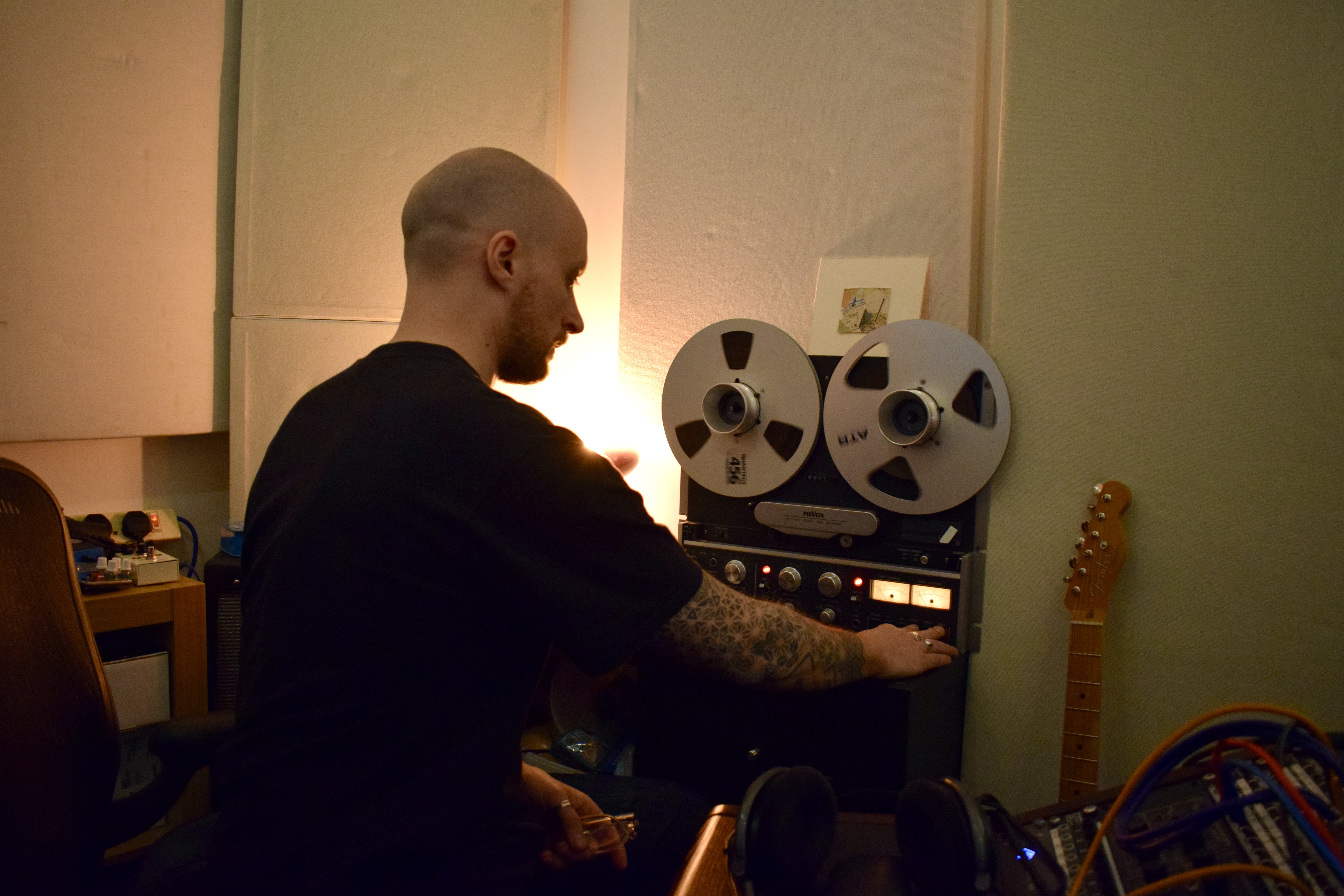
Sarathy Korwar – My East is Your West
This was originally a live show concept that Sarathy had happened to record at Church of Sound, and it went so well he had to get it mixed. The record itself is this wonderful idea of re-imagining old Jazz records that had incorporated some kind of South Asian instrumentation or musicality to it. From Sarathy’s perspective, not all these records were done with the right players, or the right performances – a white, inexperienced Sitar player for example. So his mission was to “retake ownership” of these pieces, with a band of at least half South Asian players and play everything better and with more authenticity. So to mix this with him was a real honour. I think we mixed it in two days at the old Red Bull Studio in London Bridge (R.I.P).
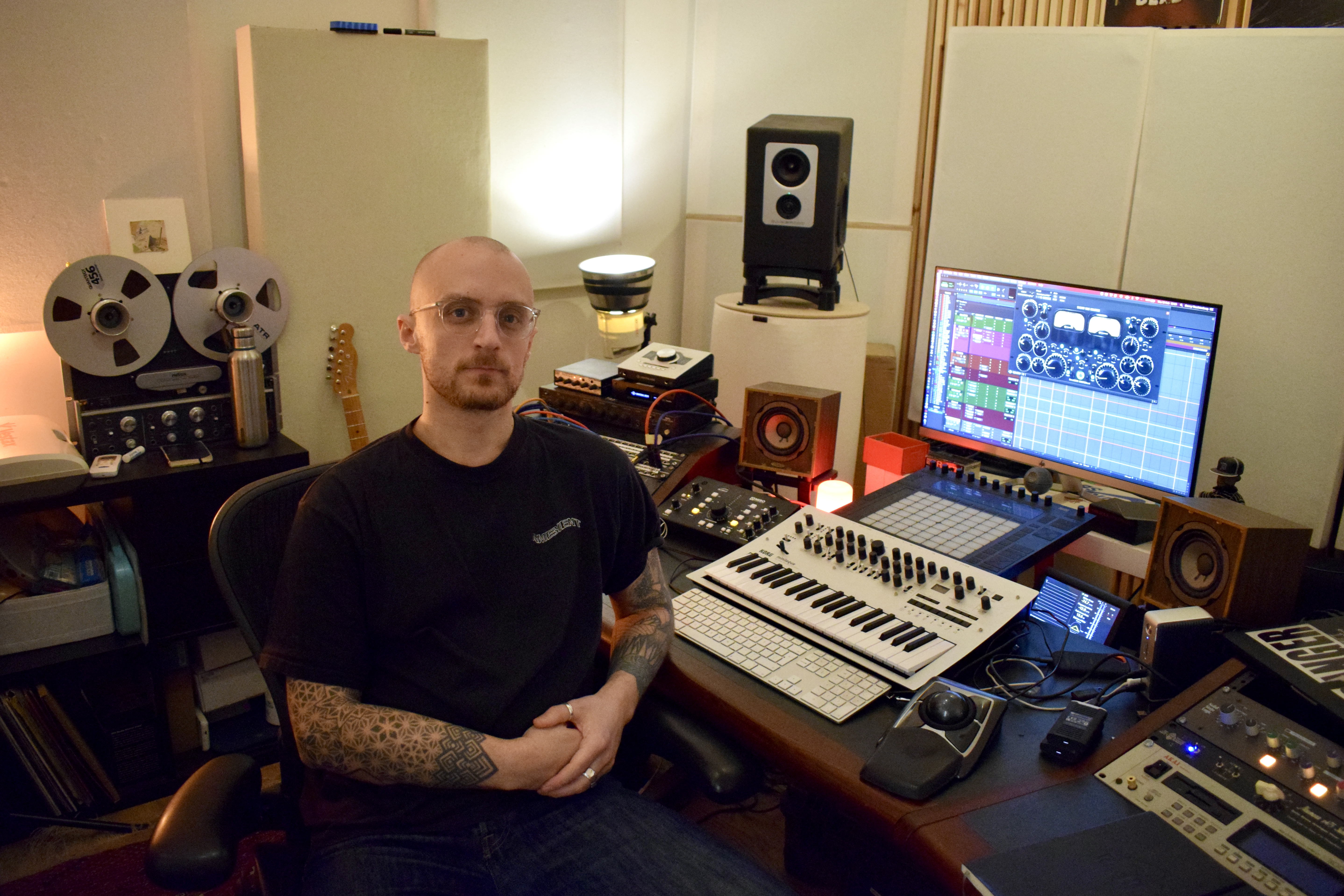
From our time together it’s obvious that Danny’s practice is truly helping artists to grow sonically, expanding their horizons through a genre hopping adaptability, and vision not seen in many Engineers.
If you haven’t already heard the work of Danny T then go ahead and check out his website, and socials; Instagram, Vimeo and Discogs. We’re all looking forward to hearing more from the prolific engineer very soon.
At Ten87 Studios we offer long term studio hire and day hire music studios. Each recording studio is acoustically treated and sound proofed to optimise any type of audio recording and music production. We are home to a large community of musicians, producers, engineers and audio professionals working in the music industry. Our main day hire studio is a world class tracking facility equipped with the best in recording studio gear, instruments, outboard and backline. We’re based in Seven Sisters, Tottenham with easy transport links to the city centre – ideal for anyone looking for a London recording studio.
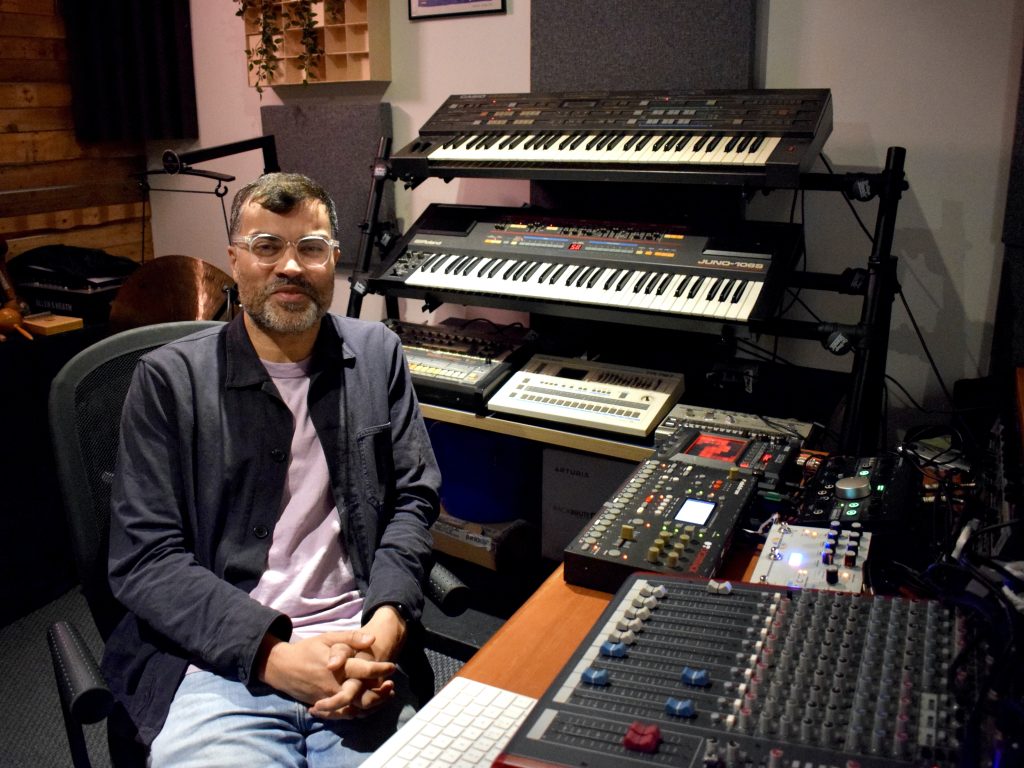
Auntie Flo
Brian d’Souza, better known as Auntie Flo, is an award-winning sound artist, DJ, music producer and live performer, known for ‘taking World Music into the future’ (The Guardian).
The multi talented musician is the central figure in the new breed of club music, fusing electronic and world influences alongside the likes of Four Tet, Daphni (Caribou), and Romare. As a DJ and live performer, Auntie Flo has toured extensively around the globe, performing in Asia, Australia/New Zealand, US/Canada, Africa, Latin America and frequently in Europe and the UK.
Auntie Flo has been described as offering a gateway to musical gems and strands of music that are lesser known and in need of exploration, and we had the great pleasure of catching up with him here in his Ten87 studio.We talked all things ‘Swell’, his new platform focusing on sound therapy, his vast collection of world instruments and the producer’s interesting techniques within his recording process.
Congratulations on the launch of your new organisation ‘Swell’! could you give a brief description of what Swell is? And about the positive links between music and wellness?
Thanks! Firstly, I shudder at the term ‘Wellness’ – it sounds so banal and fluffy. I guess what we are trying to do is reframe the conversation about what music and sound can be: the fact it isn’t merely ‘entertainment’ and that by framing it as such, really detracts away from the positive benefits we all get from listening to music and being immersed in sound. There is a great opportunity here: we are all expert listeners, and have been musically active as listeners since before we were born in our mothers’ womb. As a result, our ears are finely tuned to be able to listen to a wide variety of complex sounds at the same time, which in turn trigger a whole range of responses in our brain and nervous system, as well as our body. This then leads to a really fascinating field of study that is at the core of what we are doing with Swell – the way music and sound can unlock different states of consciousness and help one dive deeper into themselves and be more mindful of the world around them.
Did your interest in sound therapy spark from being a music producer?
I studied psychology and sound design at university and really focussed on how music affects our brain and body. As a DJ and producer, I get to continually see first-hand the effects that music has on an audience and the thing I love most about DJing is the challenge to get a room of strangers into a heightened state by playing songs in a certain order.
Training in Sound Therapy was the next logical step in my mission to understand how sound works from a behavioural and neurological level. I see Sound Therapy as a kind of inverse DJ set – instead of driving a euphoric state via the release of dopamine, endorphins and adrenaline, a sound therapy session entrains the listener to a deep state of relaxation, reducing heart rate and cortisol, the stress hormone. This then drives a lower brain wave state from beta to alpha/theta, which are commonly regarded as a place where we can be more creative and find better mental clarity.
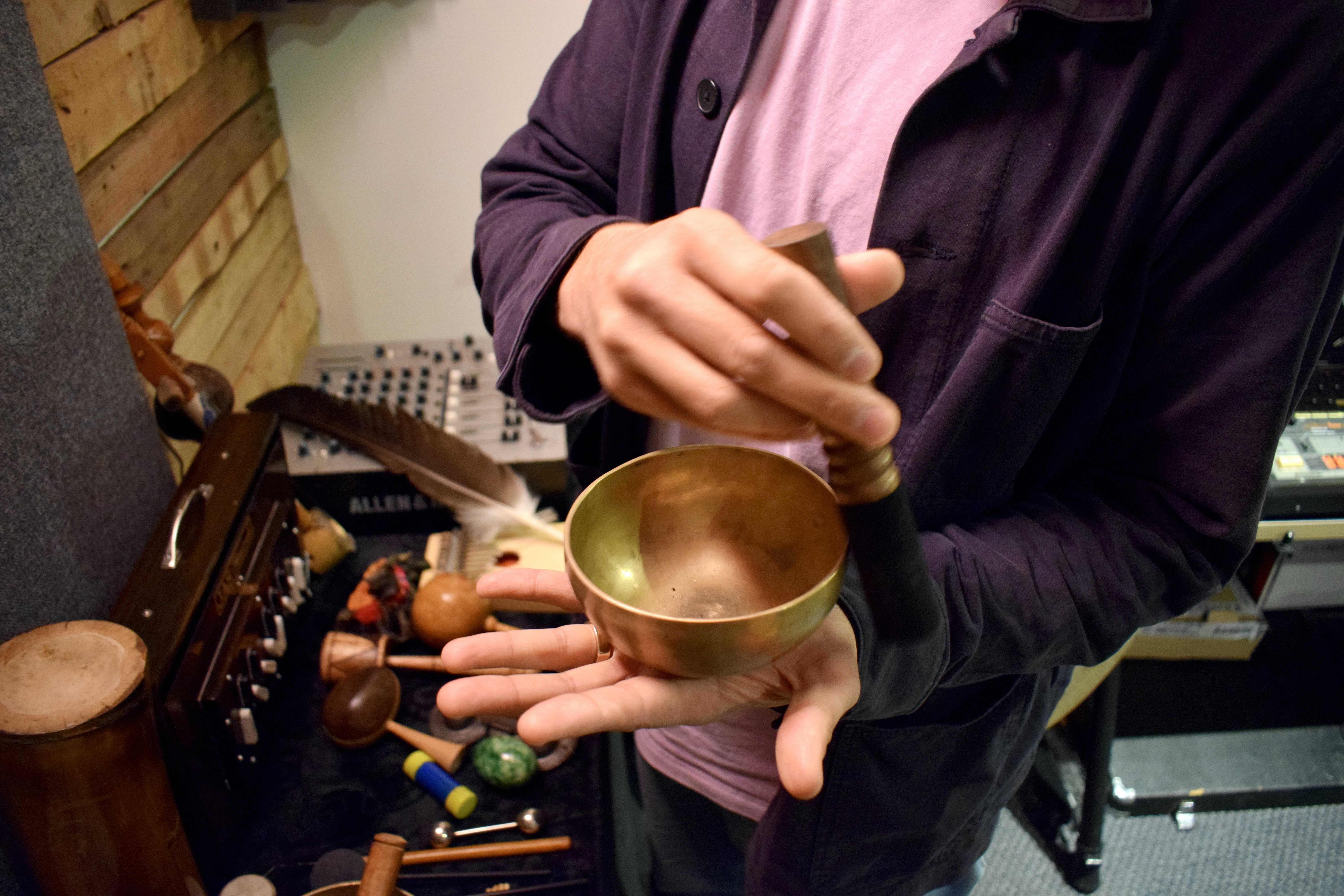
Could you tell us a bit about your collection of acoustic world instruments and the stories behind them?
I’ve always collected a lot of acoustic instruments, especially on my travels as a DJ. They all tell a story that is personal to me, but give me the chance to sample them and build a unique bank of sounds that is different to anyone else. This in turn gives me a better chance of making songs that sound unique. Over lockdown, I wasn’t able to travel so went on an eBay mission to buy lots of instruments – I picked up a Shruti Box from India, which has formed a crucial part of the new release I have with Sarathy Korwar. I bought a Soviet Era accordion to use as part of my Beacon. Black radio album that I was commissioned to by The National Trust, based on Orford Ness aka ‘The Island of Secrets’ in Suffolk, which was central to spying on the Soviets during the Cold War. I also acquired as many ‘sound healing’ instruments as I could, from condor feathers to a huge Sun Gong, which were all used as part of my Sound Therapy course.
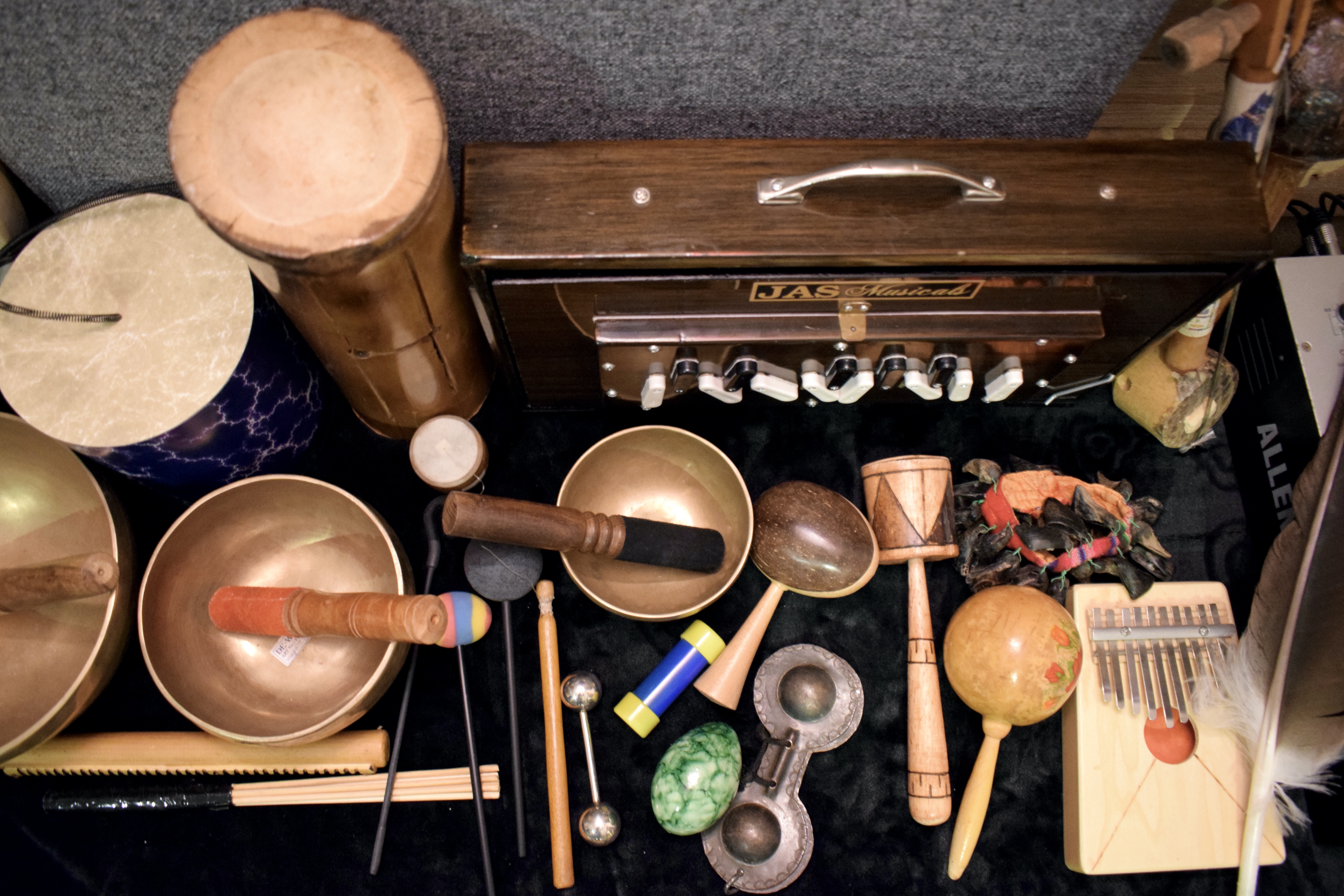
How else do you create original sound? Do you use outside field recordings in your music?
I’ve always used a lot of field recordings, but during lockdown I decided to train properly and did a 5-day course with the BBC’s world renowned sound recordist Chris Watson. I learned about lots of different mic techniques and ended up spending a lot on a bunch of high-end equipment, from shotgun mics to contact mics. This has helped take my field recording practice to another level – there is this whole sonic world out there that we don’t realise is there, masked underneath all the noise!
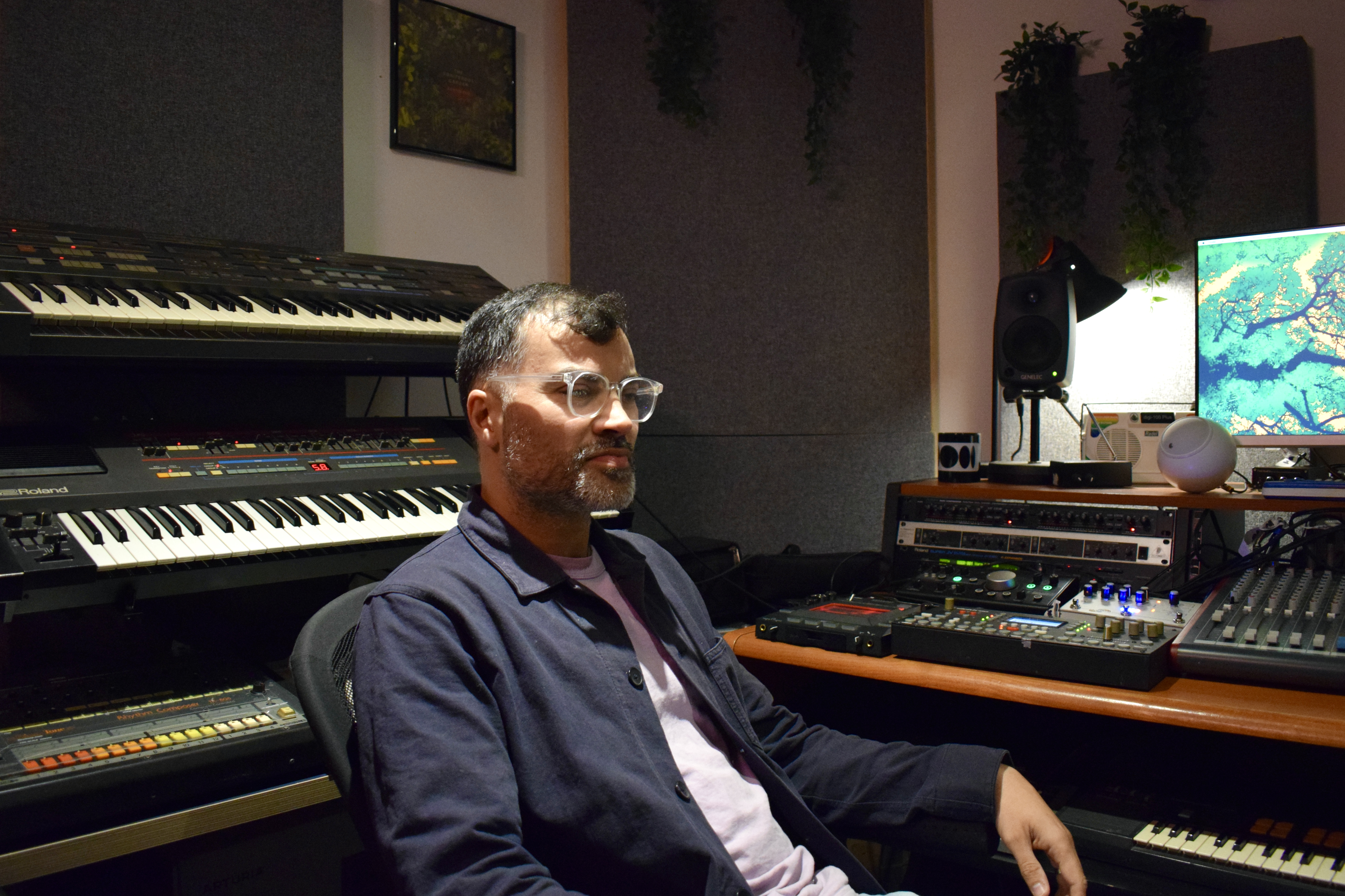
Can you tell us about the layout of your studio here at Ten87?
It’s pretty packed with a range of gear! I really like old Casios, and I must have around 10 of them. My favourite is the CZ5000, which is just so simple and pure. The crown jewel is my Yamaha CS-60, which was a bit of a spur of the moment eBay buy but once that I don’t regret – it is an incredible synth. I’ve also got a range of original Roland drum machines – 808, 727, 606 etc – still the best! I run everything through a bunch of effects buses to bring more character, so I’ve got a Roland Space Echo 201, which is a classic, as well as my new favourite the Hologram Microcosm. I try to do as much stuff out of the box as possible, and then record into Logic.
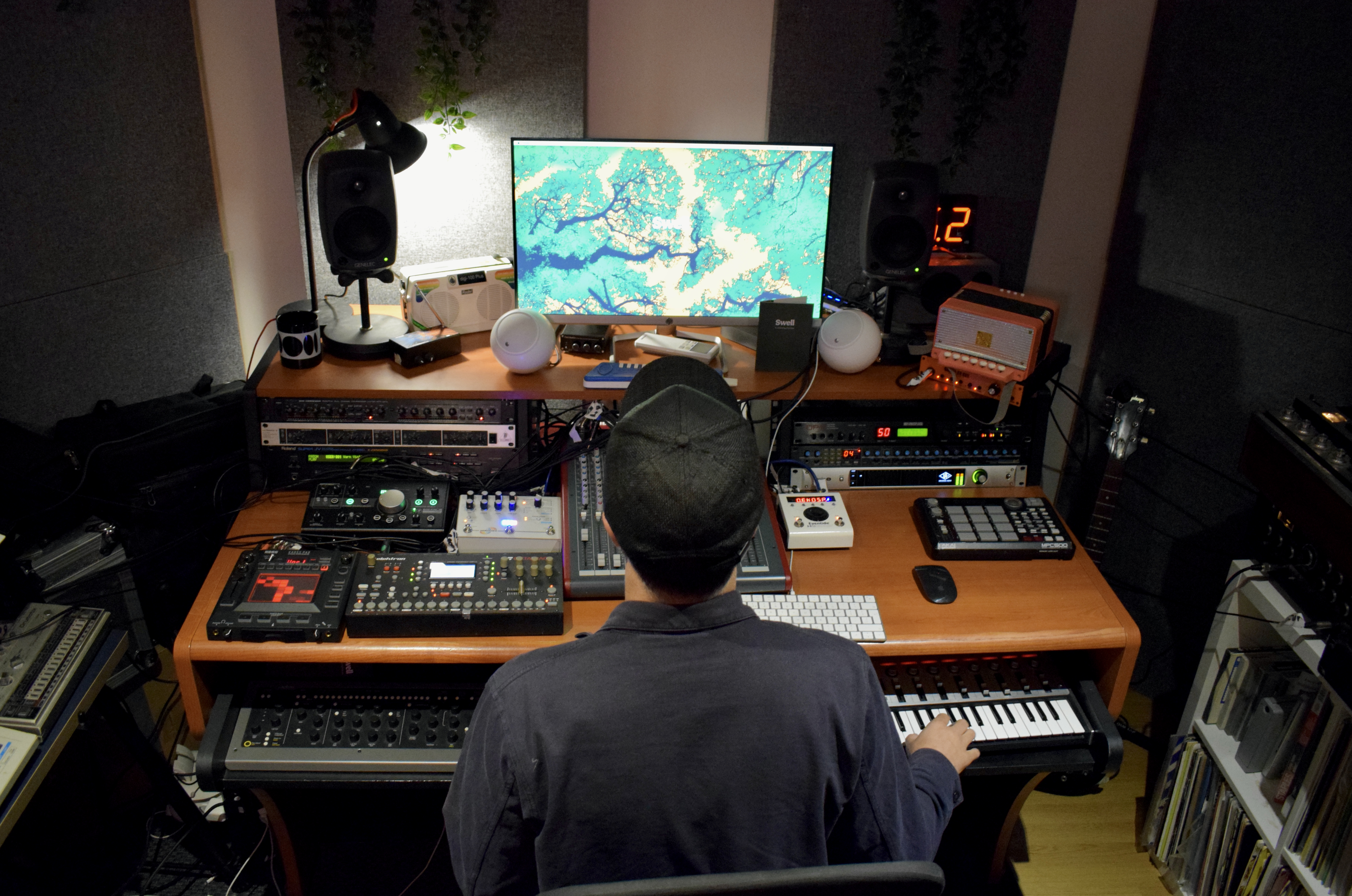
Big thanks again to Auntie Flo for chatting with us, and giving us an insight into his process. If you’re not already familiar with his work and music, go check out his Website and socials on Instagram, Twitter and Facebook and give Swell a download. We really look forward to seeing the new journey of ‘Swell’ and catching up again soon!
At Ten87 Studios we offer long term studio hire and day hire music studios. Each recording studio is acoustically treated and sound proofed to optimise any type of audio recording and music production. We are home to a large community of musicians, producers, engineers and audio professionals working in the music industry. Our main day hire studio is a world class tracking facility equipped with the best in recording studio gear, instruments, outboard and backline. We’re based in Seven Sisters, Tottenham with easy transport links to the city centre – ideal for anyone looking for a London recording studio.
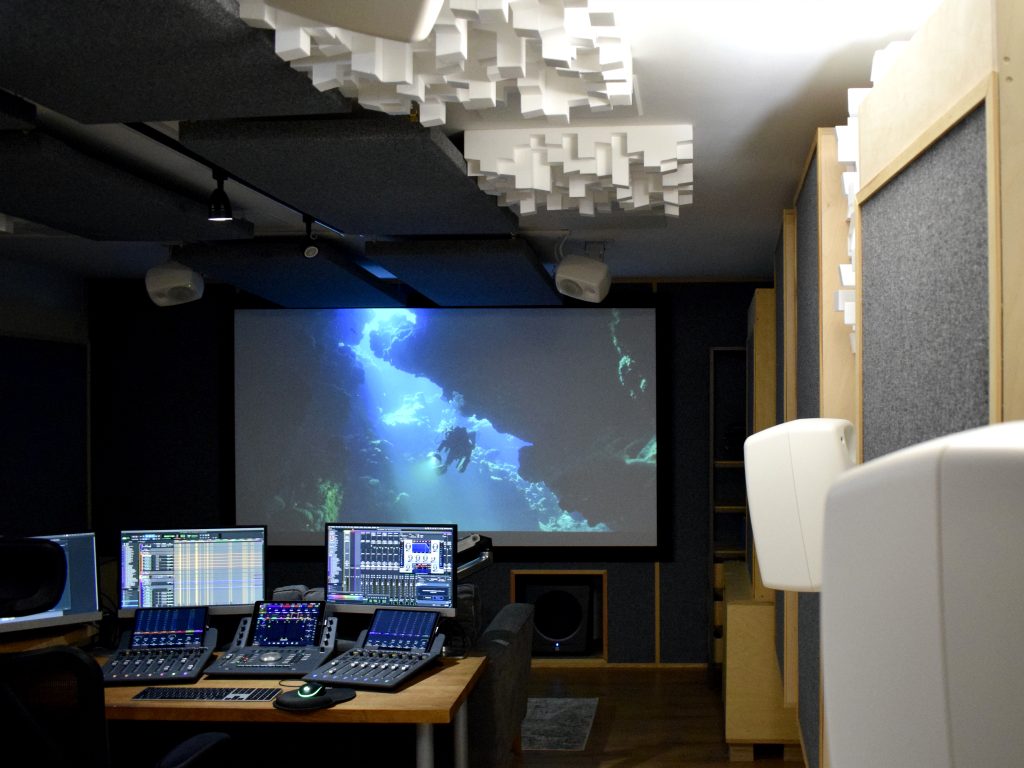
SoundNode
Introducing SoundNode, a company providing a full range of sound services for film, broadcast, multimedia and other audio-visual programs. They have worked behind the scenes on countless amazing projects such as for The Sir David Attenborough Green Planet AR Experience, music videos by artists such as Rita Ora and Childish Gambino, as well as clients including Adidas, and Gucci.
SoundNode integrates all the various stages of capturing and editing audio all within one team, under one roof. Providing any combination or the entire range of sound services necessary to make your production sound amazing. “I’m a big fan of SoundNode. Since discovering them 5 years ago, I’ve used them for location sound recording and audio post across multiple projects. Their audio skills are second to none.” Becci Ride, Producer/Production Manager – Disney, Formidable Media.
Exciting developments have been underway in their Ten87 Markfield Road studio, where a brand new Dolby Atmos set up has been installed. We were lucky enough to go down and have a peak during the installation process, and to see the final install. We spoke to SoundNode about some of their work and this fantastic new technology they have acquired.
Can you tell us a bit about SoundNode and the work you do?
In SoundNode we are a company made of a friendly and professional team of sound engineers who specialise in providing the full range of sound services for audio-visual productions. We pride ourselves in providing services of excellent quality and doing so with a friendly and creative approach, no BS, just loving what we do.
We offer both the on-set sound recording as well as the entire range of audio post-production services up to final mix and deliverables. In doing both we can make sure that the entire sound of a production can be taken care of under one roof, thus being able to maintain the best quality and creative direction throughout the entire process.
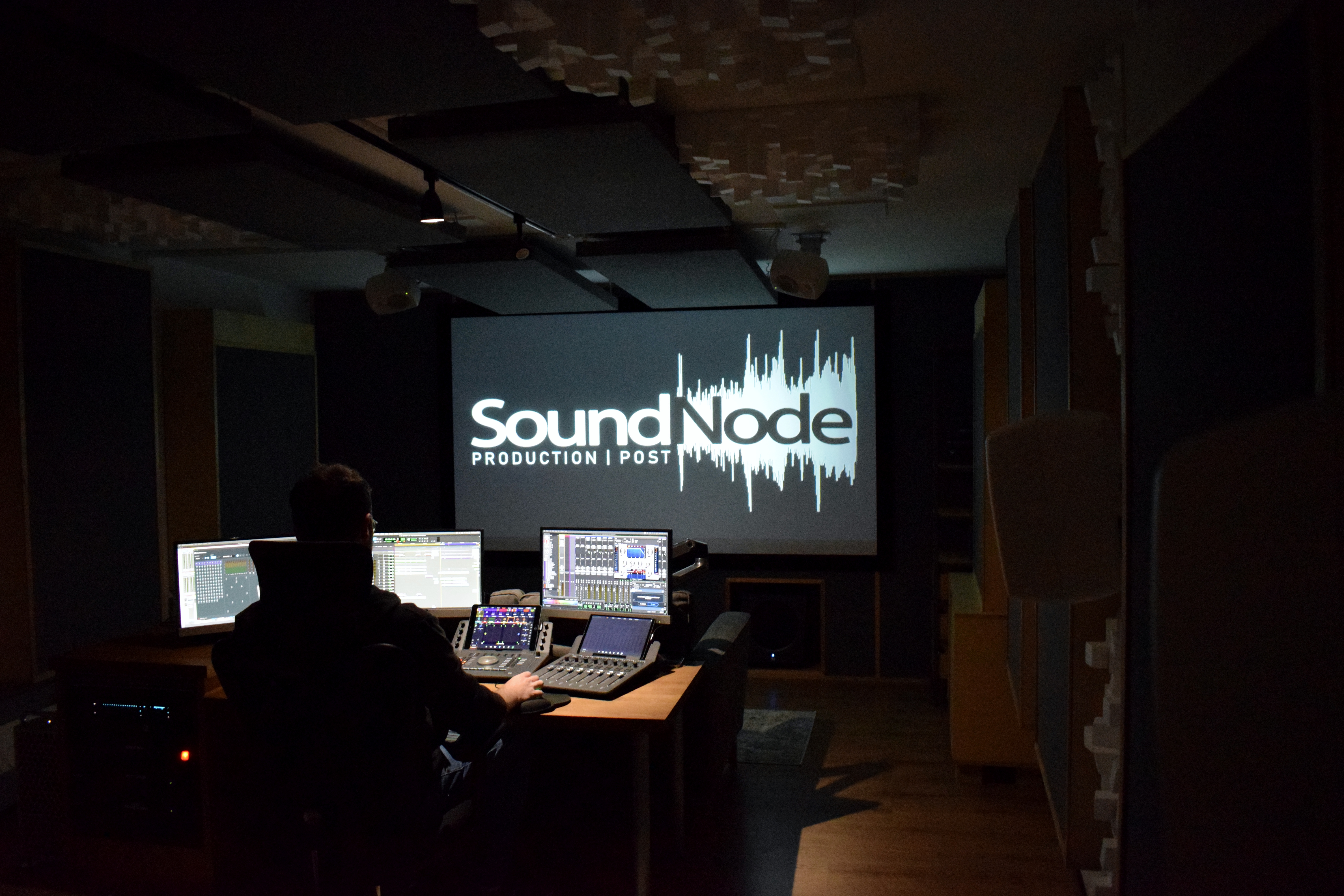
What are some of the favourite projects you’ve worked on?
This is a tough one as many jobs have been really exciting in very different ways. The content we work on is hugely varied and it ranges from Online Short Commercial/Corporate content to long form factual content, Theatrical Feature Films and TV/Streaming Series. So really the full roster of programs, all with their own thrills and challenges.
The projects we usually enjoy most are longer ones where we truly can bring the SoundNode experience of taking care of all things sound from beginning to end, being involved during the conception phase, to the shoot, and all the way until bouncing out the final mix. The vast majority of our work is part of a bigger collective effort with many departments who all add their contribution to the project and we thrive a lot in this collaborative environment. So our favourite projects are the ones where this collaboration is truly even, fruitful and creative. Often we have long established friendly and personal relationships with the people we work with and for – thus we might also favour projects where it feels like you are working with a bunch of old friends.
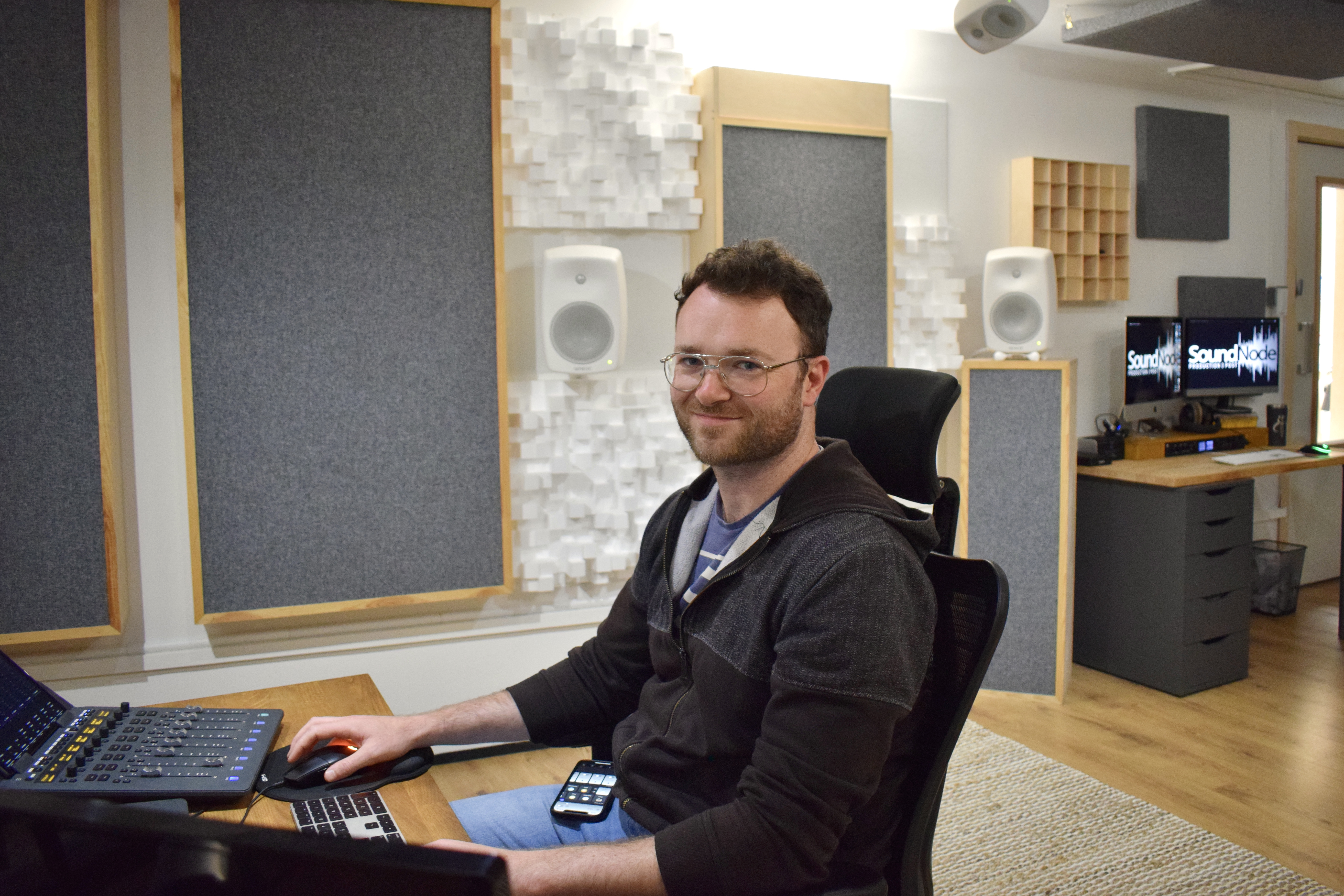
How has the installation of the Dolby Atmos system into your studio here at Ten87 been?
Atmos is still a quite new technology and as with every new technology there are some challenges in the install and setup. We already had a 7.1 setup before and the step up to 7.1.4 might seem small but due to various implications on the technical side and the workflows we did end up replacing the entire surround speakers system, our controllers, main monitoring controller, speaker calibration and main audio interface. But coming from 7.1, at least the general layout of the room and the majority of wiring and installation was there.
For this installation we have opted for a 7.1.4 system based around the Avid MTRX Studio interface which allow us to have a fully calibrated and time-aligned system through the DADman software, Focal Trio6 Be 3-way speakers for the front channels for excellent clarity and definition, full range Genelec 8040’s for the horizontal surrounds, bass managed Genelec 8020’s for the ceiling channels, and a JBL sub.
We also had to adjust and improve the acoustics as we now have more point sources in the room triggering sound from the ceiling downwards which was not the case before. So we opted for a combination of additional skyline diffusors and broadband absorption to be able to control the reflections without making the room sound dead or dry. This coupled with our existing 110″ acoustically transparent projection screen really creates an exceptional listening environment.
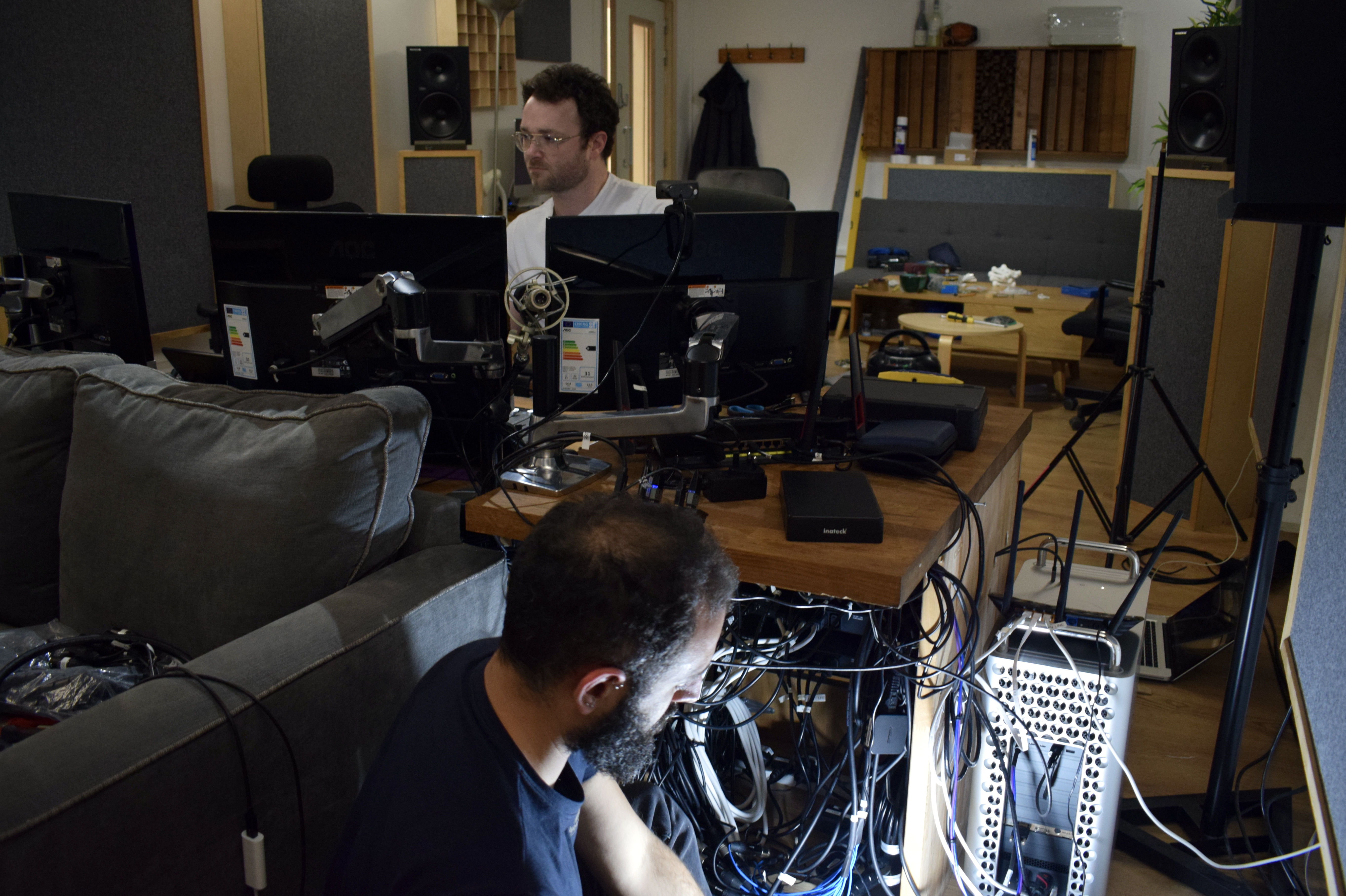
What are the main features of this new technology?
Basically since the 1930’s – when stereophonic sound and even rudimentary forms of surround sound were first being experimented with – we have been panning in the same way: the pots controlled how much level to send to one or the other speaker. This was the same for the digital surround sound formats such as 5.1 and 7.1, which became more popular in the 90s, but just with more speakers. The issue with this is that, as it was a fixed level to each speaker, if the speakers in different listening environments were placed in different positions to the original one, it would result in the intended panning of the source being affected. And we all know that every room and setup is different, thus we were left with either playing it fairly safe in terms of using the surround field or living with the fact that “bold” panning that might sound cool in the sweet spot of one listening room might be not working so well for a viewer sat in a different room.
Dolby Atmos revolutionises this, as it is not just a system of more speakers around and on top of you, but it also changes the way we can pan the ‘Objects’ within the space. In Dolby Atmos, we move ‘Objects’ to a position in space and it is the Renderer that then decodes what level it needs to send to each speaker for that ‘Object’ to be reproduced from that position based on the room and speaker setup that you have. The more speakers you have, the more accurately these positions can be reproduced, but the system allows you to go down to stereo and do a binaural render to make sounds come from all around you just while wearing headphones (with each system’s limitations that is).
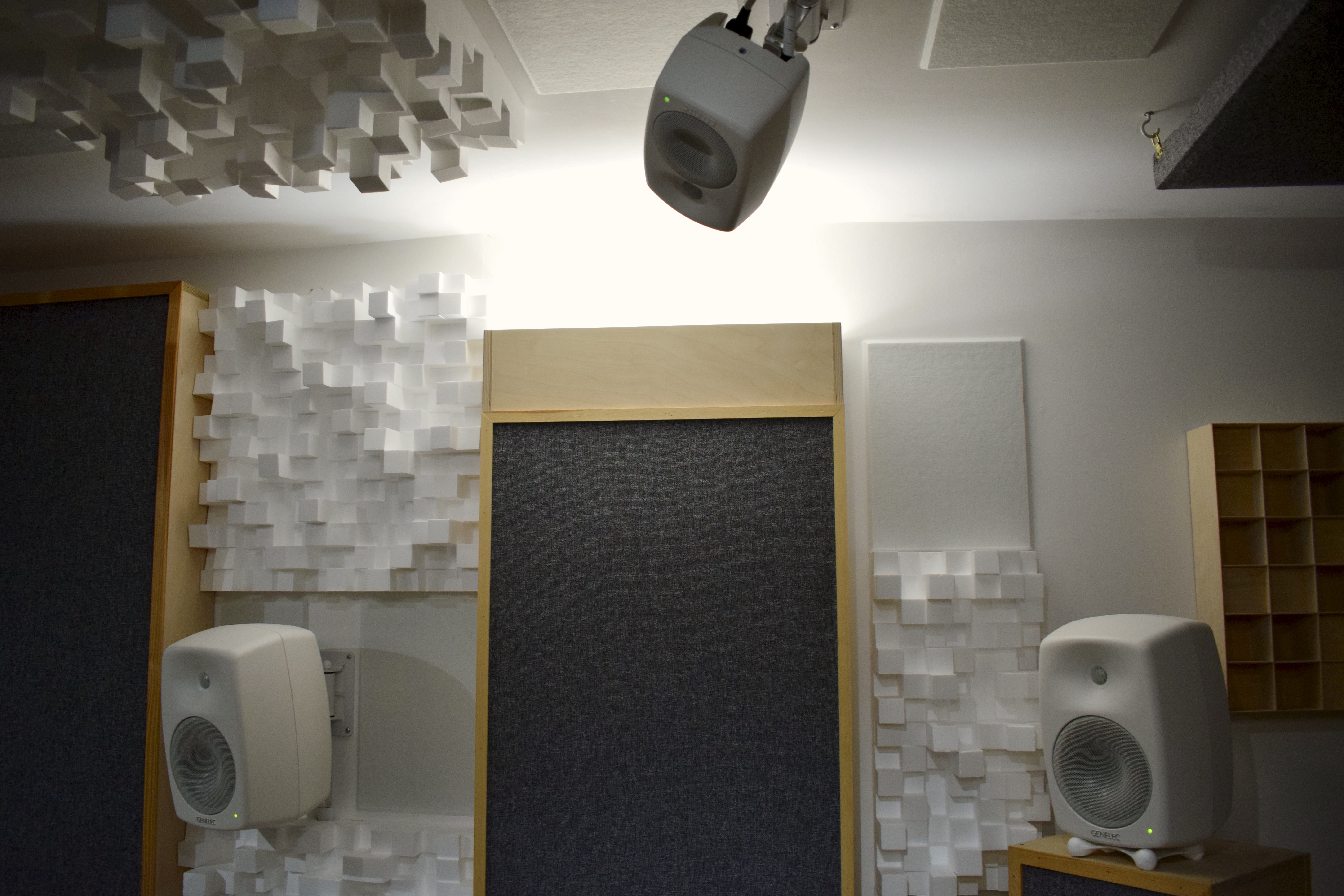
So what does all of this mean for the end users? Well first, Dolby Atmos now introduces height with ceiling speakers, so the full 3D space is a reality: planes flying over your head, birds chirping up in the trees, rain falling on top of the roof, etc. can all be achieved which was not possible before. Additionally and perhaps even more importantly, the same mix can be reproduced in multiple different systems, with different amounts of speakers and channels; in surround sound systems, home entertainment sound bars, as well as binaural renders on headphones, and everything in between. It also allows for better translation of the mix from the dubbing room to the listening room, as the system compensates for the differences of the rooms and speaker amount/placement.
What will having the Dolby Atmos system mean for SoundNode?
Dolby Atmos has now been around for a while, and it is clear that it is here to stay as we now see platforms like Netflix, Disney +, HBO Max, Apple Music, Tidal etc. all streaming content in this standard. Additionally, the Home Entertainment environment has become a very significant one for the industry and further becoming more so in the near future. We have set up our facility especially for these kinds of programs and environments, letting us and our clients produce top quality content in excellent monitoring facilities, particularly designed for their audience and their audiences’ expected listening environments.
For work on big Theatrical Dolby Atmos film mixes, the technology and our setup allows us to do all of the pre-mix work in our more competitive facilities and then easily translate that mix when taking it to the large format Dubbing Theatres for the final mix.
And finally from a creative point of view, we are now approaching the track-laying and sound designing differently and taking into account the 3rd dimension. We are thinking what comes from above, we are thinking vertically as well as width, depth, front and back. Basically, making programs more immersive and exciting for the audience with a very powerful tool to make great sounding and emotionally engaging content.
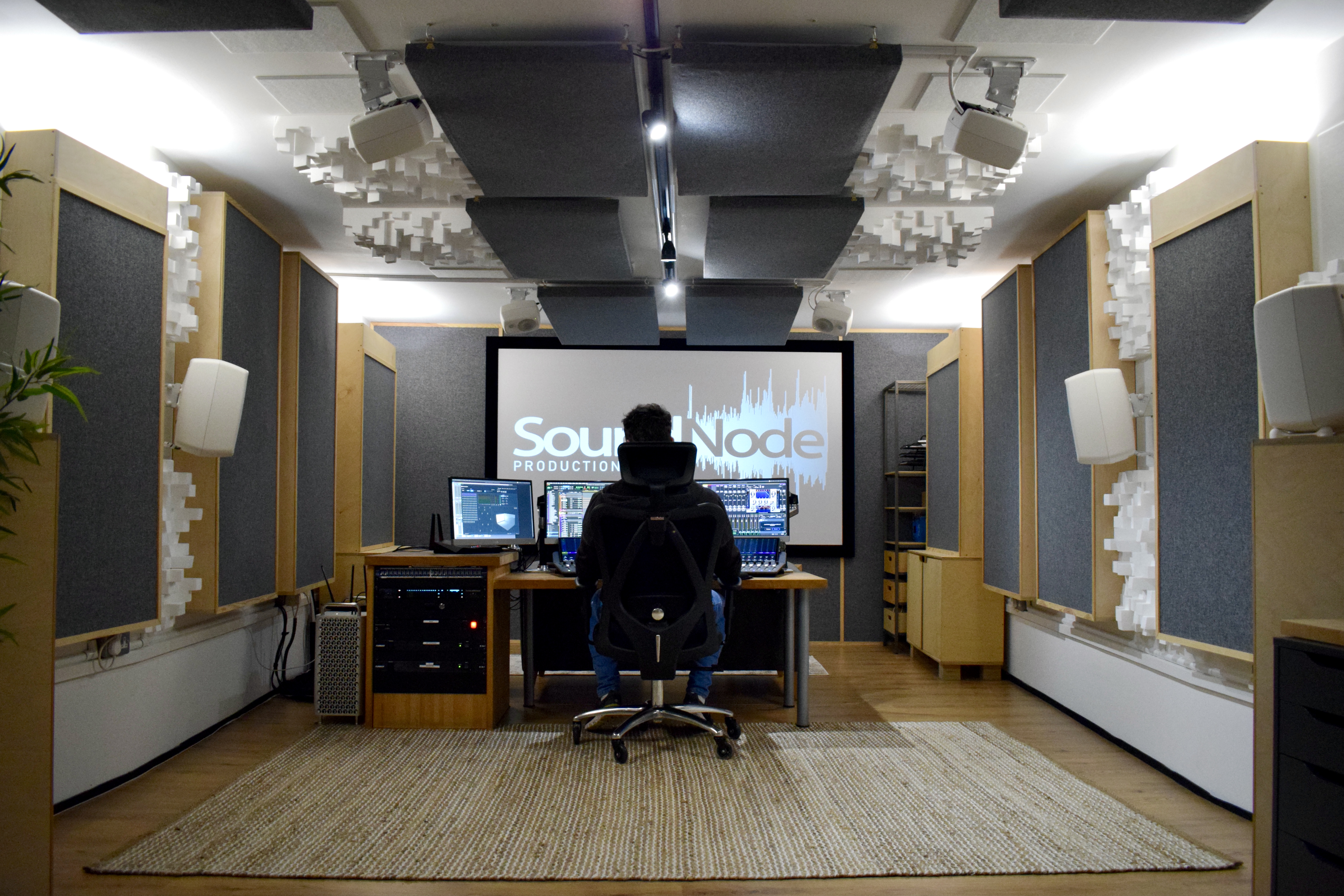
Thanks so much to SoundNode for sharing your world, and chatting with us about your exciting new set up! If you’d like to keep up to date and follow SoundNode’s journey then check out their socials on Instagram and Facebook, and also on the SoundNode Website.
At Ten87 Studios we offer long term studio hire and day hire music studios. Each recording studio is acoustically treated and sound proofed to optimise any type of audio recording and music production. We are home to a large community of musicians, producers, engineers and audio professionals working in the music industry. Our main day hire studio is a world class tracking facility equipped with the best in recording studio gear, instruments, outboard and backline. We’re based in Seven Sisters, Tottenham with easy transport links to the city centre – ideal for anyone looking for a London recording studio.
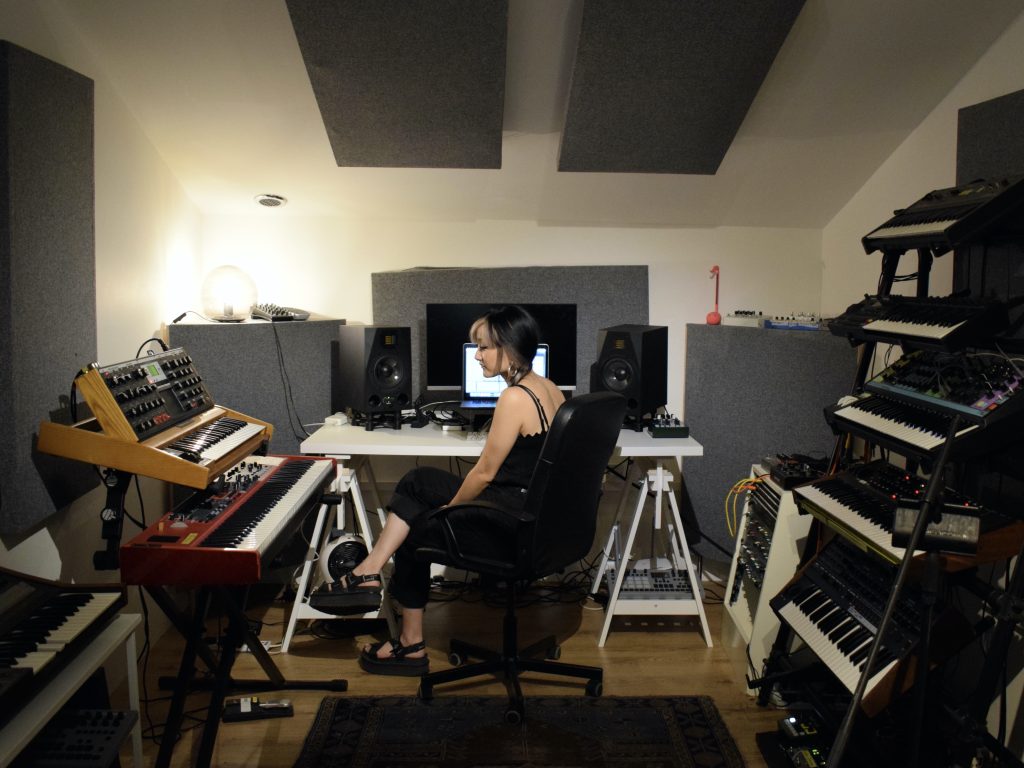
Hinako Omori
Hinako Omori is a wondrous producer and musician from Yokohama, Japan. Her thoughtfully crafted compositions weave between forest bathing, ambient electronics and celestial soundscapes, which transcend the experience of them into something more than music. We were lucky enough to be invited into her studio to take a brief peak into her musical world. The critically acclaimed artist talked to us about her release ‘a journey…’, and gave us a generous insight into her process, as well as some of the new technologies she is exploring such as binaural sound.
Can you tell us a bit about the themes and concepts behind your new project ‘a journey…’?
Of course! “a journey…” came into being through a very kind invitation from my friend Oli Jacobs, head engineer at the beautiful Real World Studios. It was during the Summer of 2020, and as we were still in the first wave of the pandemic they weren’t able to host WOMAD Festival in person as they would usually do. They arranged an online, immersive audio version, and Oli very kindly asked if I’d be interested in taking part. I’ve always been fascinated by binaural and immersive audio, so I was over the moon!
I had a couple of weeks or so to put something together, so I decided to piece together some demos to make a continuous piece and took the stems up to Real World. The day before the mixing session, the lovely Katie May (who is an incredible engineer also at Real World) and I took a binaural head to the surrounding areas of nature, such as the Mendip Hills, and the piecing together of the songs and field recordings became the album.
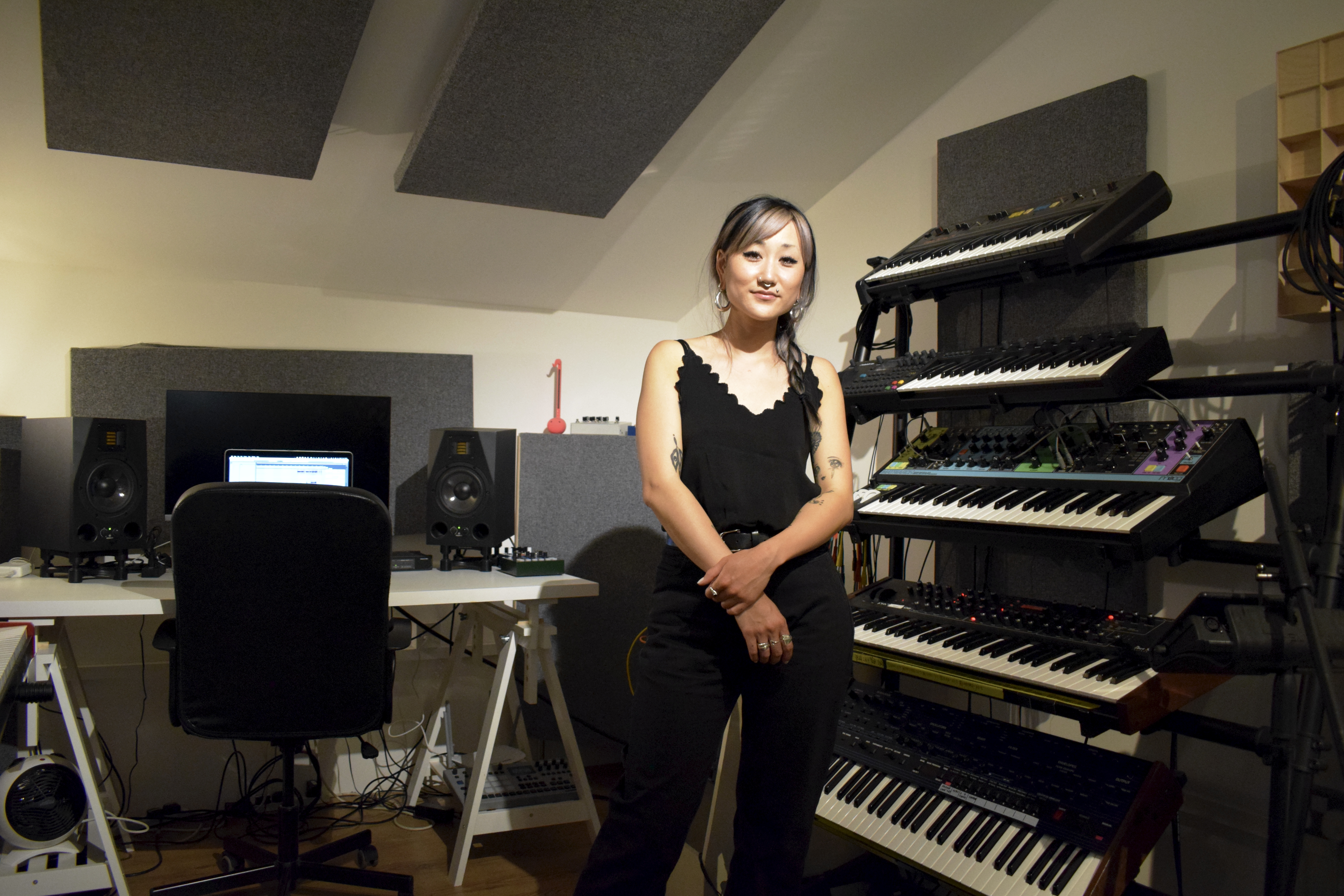
The use and importance of binaural sounds comes up in your work, could you tell us a bit about what this is and how it works? And why it is important for your music.
Binaural sound (very broadly!) is literally how we hear sound through our ears – how sound waves arrive at each of our ears at different times, enabling us to place the source of the sound and create a spatial awareness.
Binaural recordings can be used to create a more immersive atmosphere and experience, and one of the ways we can do this is by using a dummy head with two microphones placed where our ears would be, capturing the audio how we would hear it.
As this project was during the beginnings of the pandemic and I was conscious that not everyone might have access to nature, I wanted to create an atmosphere where you could pop on some headphones and fully immerse yourself in nature from the comfort of your own home – I feel that the binaural field recordings that we captured from the forests around Real World Studios definitely helped me in creating a sonic environment for the music.
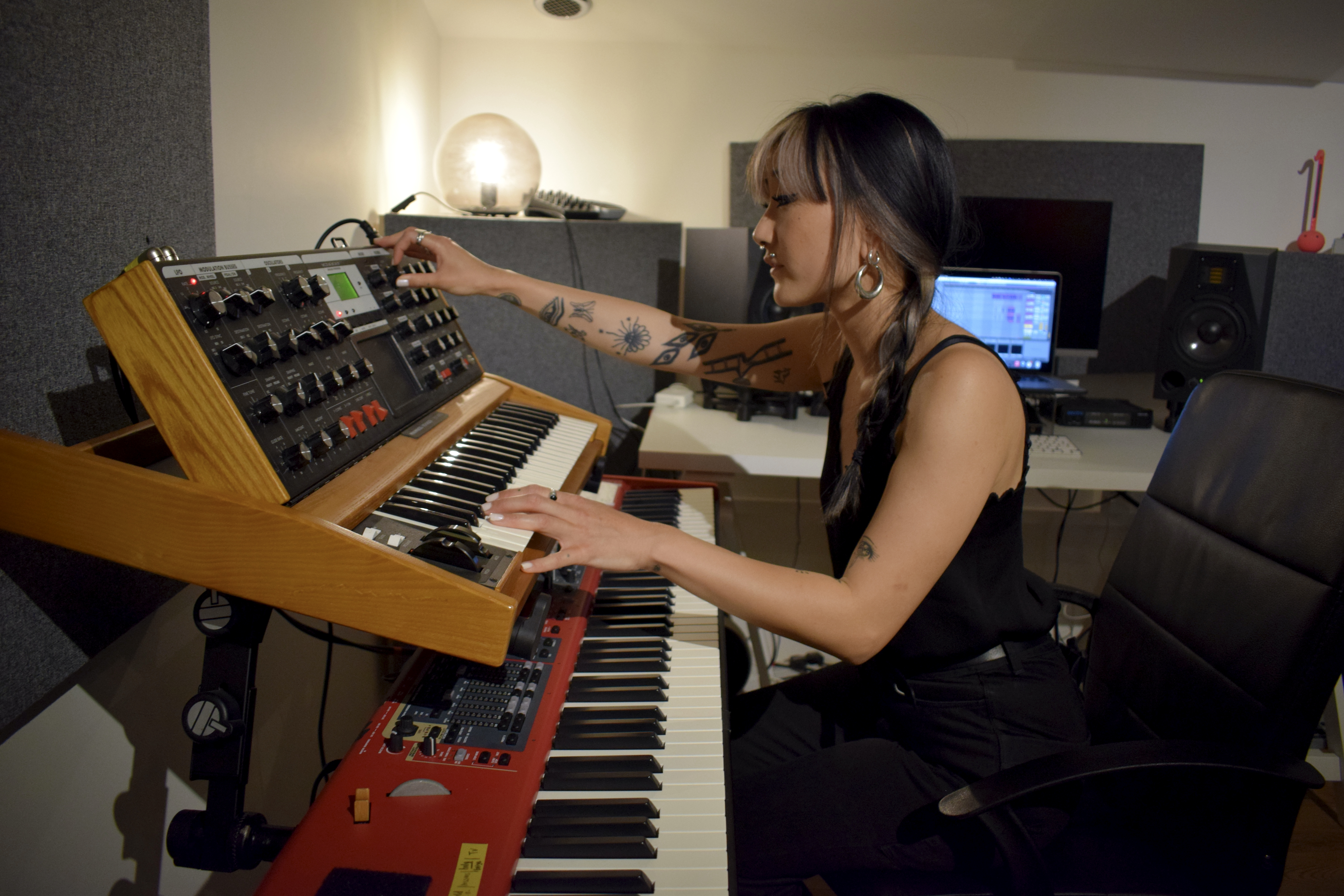
Have there been any essential studio tools/items that have helped you through the process of making your new album?
My dear synths, Sequential Prophet 08, OB6 and Moog Matriarch – I love them and use them on everything!
How would you explain the relation in your work between sound and visuals?
It’s a really interesting question as I’m not sure necessarily if the visual side of things come into my head at the start of the music creating process for me, unless it’s for a particular project or theme. I think a lot of the time it becomes clearer as the project unfolds, perhaps!
I’ve been incredibly lucky to collaborate with artists I admire greatly on visuals for different projects – Gustavo Eandi and Emi Takahashi on release artworks, and Thomas Harrington Rawle and Jessie Rodger on visuals for live shows/videos. Emi also created videos for “a journey…”. It’s been such an absolute honour to collaborate with them, and to see their magical vision come to life.
How has your experience been being a part of the Ten87 community?
It’s been such a lovely experience getting to know the incredible community here, and there’s always so many wonderful opportunities for collaboration. It really is a very uplifting environment with a very warm energy, and I’m really grateful to have met everyone here.
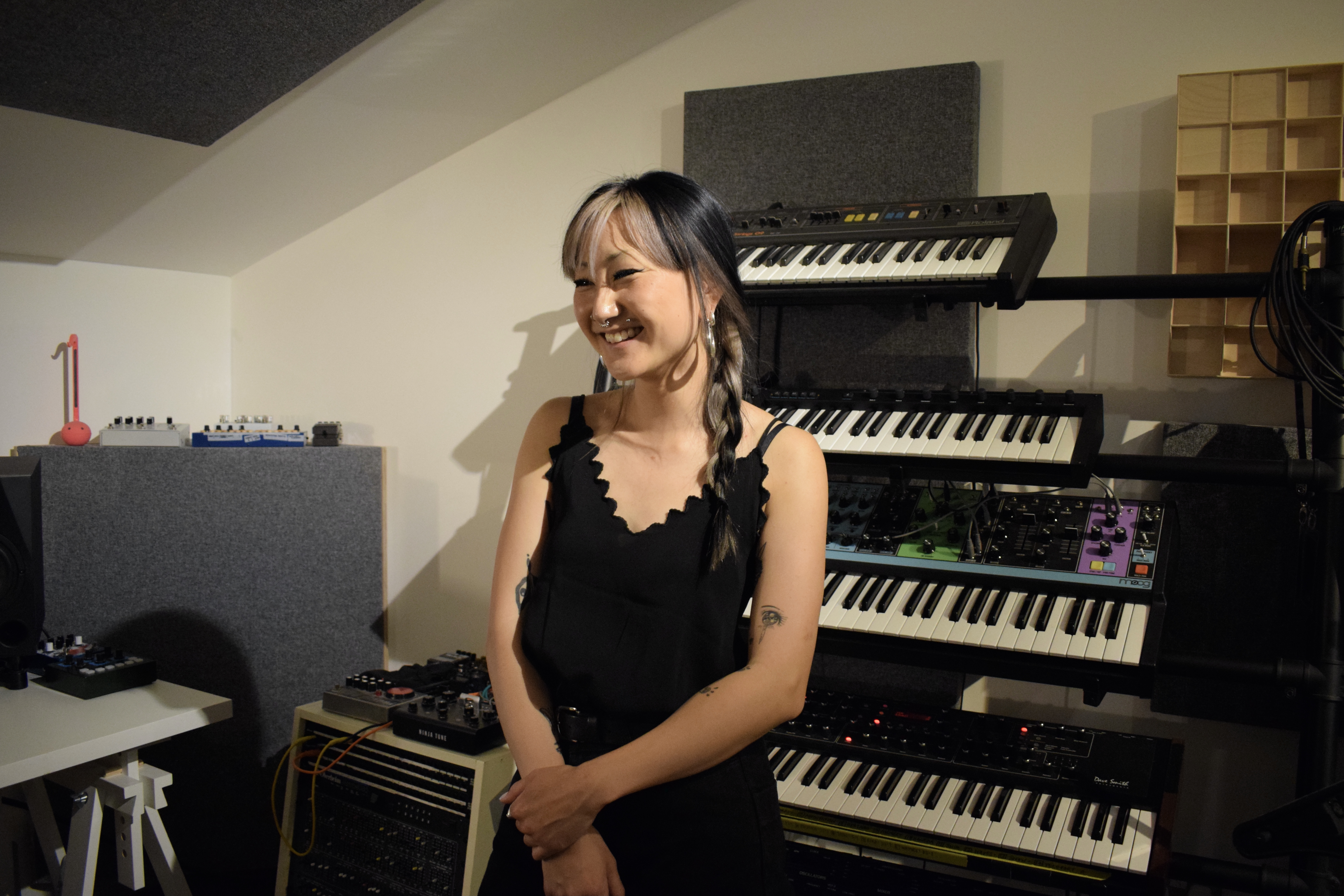
Thanks so much to Hinako for showing us around her Ten87 studio and sharing her world with us. If you haven’t already listened to ‘a journey…’ The project is available to stream on all platforms. She has also recently released a collection of reworks of the album called ‘a journey with friends…’.
We wish Hinako the very best for her upcoming tour of ‘a journey…’, being the first time to hear this project live. To keep up to date with her journey visit her website and Instagram.
At Ten87 Studios we offer long term studio hire and day hire music studios. Each recording studio is acoustically treated and sound proofed to optimise any type of audio recording and music production. We are home to a large community of musicians, producers, engineers and audio professionals working in the music industry. Our main day hire studio is a world class tracking facility equipped with the best in recording studio gear, instruments, outboard and backline. We’re based in Seven Sisters, Tottenham with easy transport links to the city centre – ideal for anyone looking for a London recording studio.
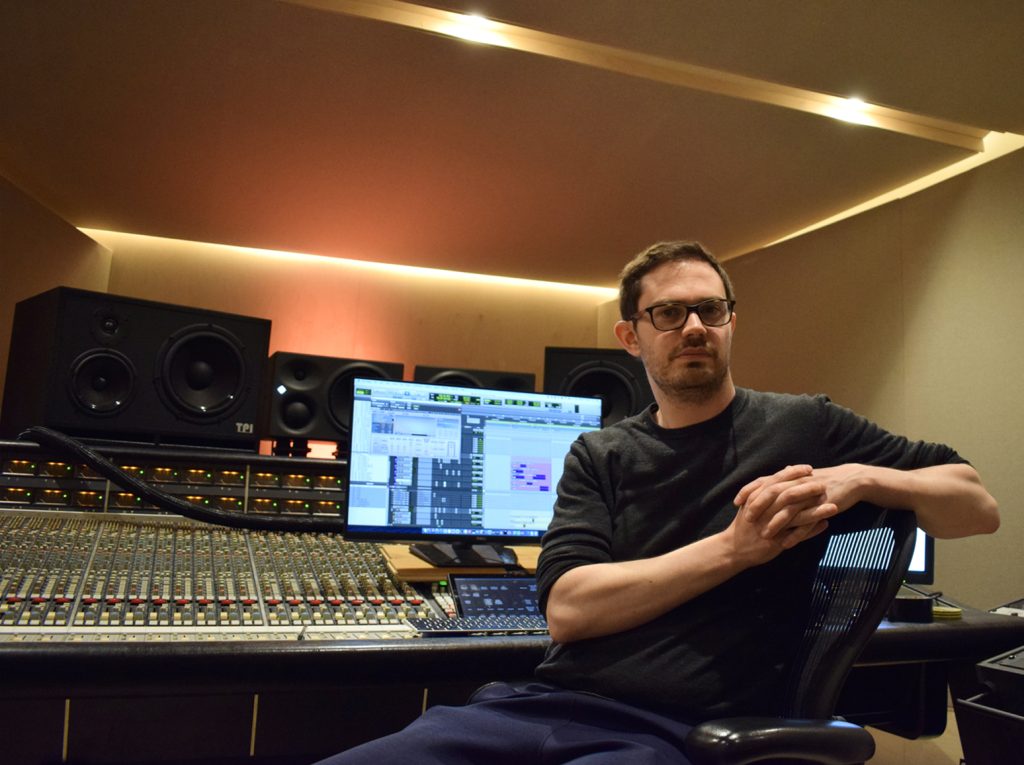
Adam Miller
Introducing Adam Miller, over a decade spent in-house at AIR studios, Adam has perfected his craft on feature films and classical records, games, and major stadium shows, working with the best and most innovative in the industry.
Adam co-engineered the soundtrack for Hans Zimmer and Jacob Shea’s BBC Planet Earth: A Celebration, recorded Bobby Krlic’s transfixing score for Midsommar, mixed music for large arena shows and has been involved in countless other exciting projects.
What initially drew you to work on music for film?
Originally – like a lot of people – I wanted to work with cool bands and artists, and I really only had vague notions of how film music worked. But I somehow managed to land a job at AIR Studios where film and tv work with orchestras is the bread and butter, and the first time I heard an orchestra of top players run down the first take of the first cue of the day was something special. From that moment I started to think that perhaps working in this field might be for me. It’s something about the energy of teams of hugely talented people all working together to produce something extraordinary in the service of an artistic vision.
What are you working on at the moment?
I’ve been remixing the George Michael album Patience into Dolby Atmos. It’s certainly been an interesting challenge – there’s the newness of working in spatial audio, combined with the intricacies of respecting an artist’s original vision, making the most of the environment whilst retaining the punch and immediacy of a pop record. George was all over every aspect of the record-making process, and everything he did was deliberate and considered – so it’s got to be true to the original, whilst showing off the capabilities of the format.
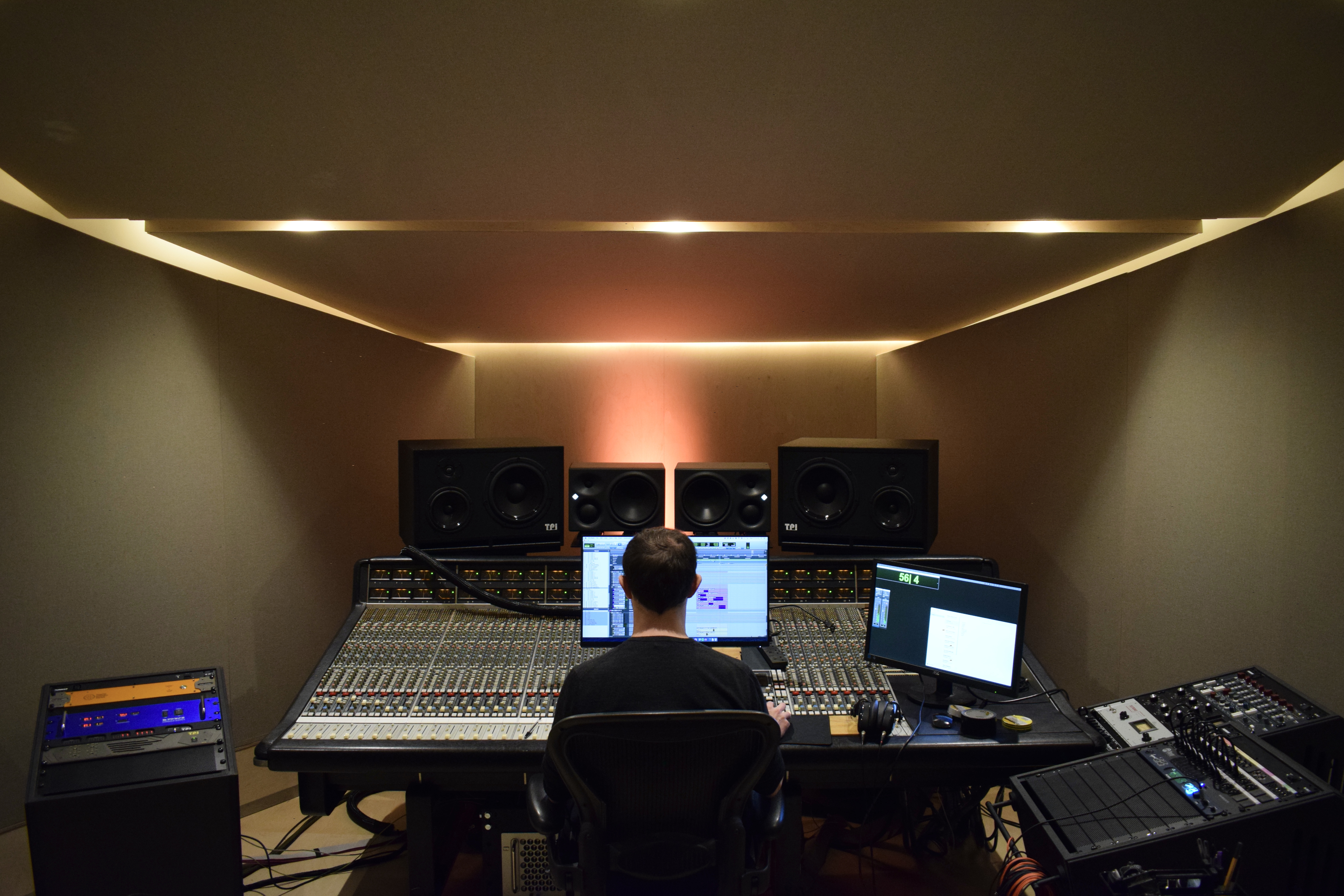
What’s the most challenging aspect of your job?
Probably time. There’s rarely enough of it because music is normally one of the last things to be completed in the production process. It forces you to work efficiently and make decisions quickly though – that’s tough when you’re starting out, but hugely powerful once you’re used to it.
What bit of studio kit can you not live without?
Protools. It’s not a very exciting answer, but it’s truly the only essential item. If AVID ever goes under I’ll have to retrain as a shepherd or a sommelier or something.
In terms of recording and production, what’s the album you turn to as your as a rock solid reference?
It’s perhaps only obliquely relevant to the kind of stuff I’m normally working on, but Mezzanine by Massive Attack is the pinnacle of human sonic achievement. There’s no hope I’ll ever be able to make something sound as good, but I’ll keep trying.
Can you highlight a few projects that have been your favourite to work on?
I recorded and co-produced an album for Peter Gregson called Patina (we mixed it @Ten87) that was a pretty special experience. We started it off in lockdown part 1, so for once there was the luxury of time – actually being able to try things, digest, revise and perfect them was refreshing.
I mixed a short called Stuffed a couple of years ago, with music by a fantastic composer called Joss Holden-Rea. It was one of those unusual enquiries that lands in the inbox – a musical about human taxidermy? Turns out it’s absurd genius, a real labour of love, and a privilege to be involved with. It was nominated for a BAFTA this year, you can and should find it on VIMEO.
Many years ago I was fortunate enough to spend 3 days in the studio with Stevie Wonder, assisting the late great Steve Price on the faders. It was pretty much everything you’d hope for. That was almost a decade ago and the project still hasn’t come out, so I’m not holding out much hope… You’ll just have to take my word for it that it happened, and it was cool.

What’s been the most challenging project you’ve worked on to date?
Good question… I guess things are challenging for different reasons, but one that sticks out is recording and mixing the music for the opening and closing ceremonies of the 2017 Asian Indoor & Martial Arts Games (it’s an Olympic event apparently). It was taking place in Turkmenistan, which is a bit like North Korea but with more shiny buildings. We were recording with local musicians, and had to ship absolutely everything we might need in from London. We’d record in the day and then mix in the evening on headphones backstage under the stadium… I think we recorded and mixed about 4 hours of finished material in the end.
On day 1 of our tightly scheduled recording plan we discovered that it was ‘Melon Day’, which was of course a national holiday and therefore no-one was allowed to record a single note. On day 2 I discovered that any software that relied on cloud authorisation wouldn’t work because of the countrywide firewall implemented to block dissident Adobe Photoshop subscriptions. To compound our problems, on day 3 of our stay the President enacted a nationwide alcohol ban for the entire period of the Games.
How have you found being a part of the Ten87 Community?
It’s such a great place to be – just the rooms and the vibe of the place is spot on, and it’s run by some of the nicest people around!
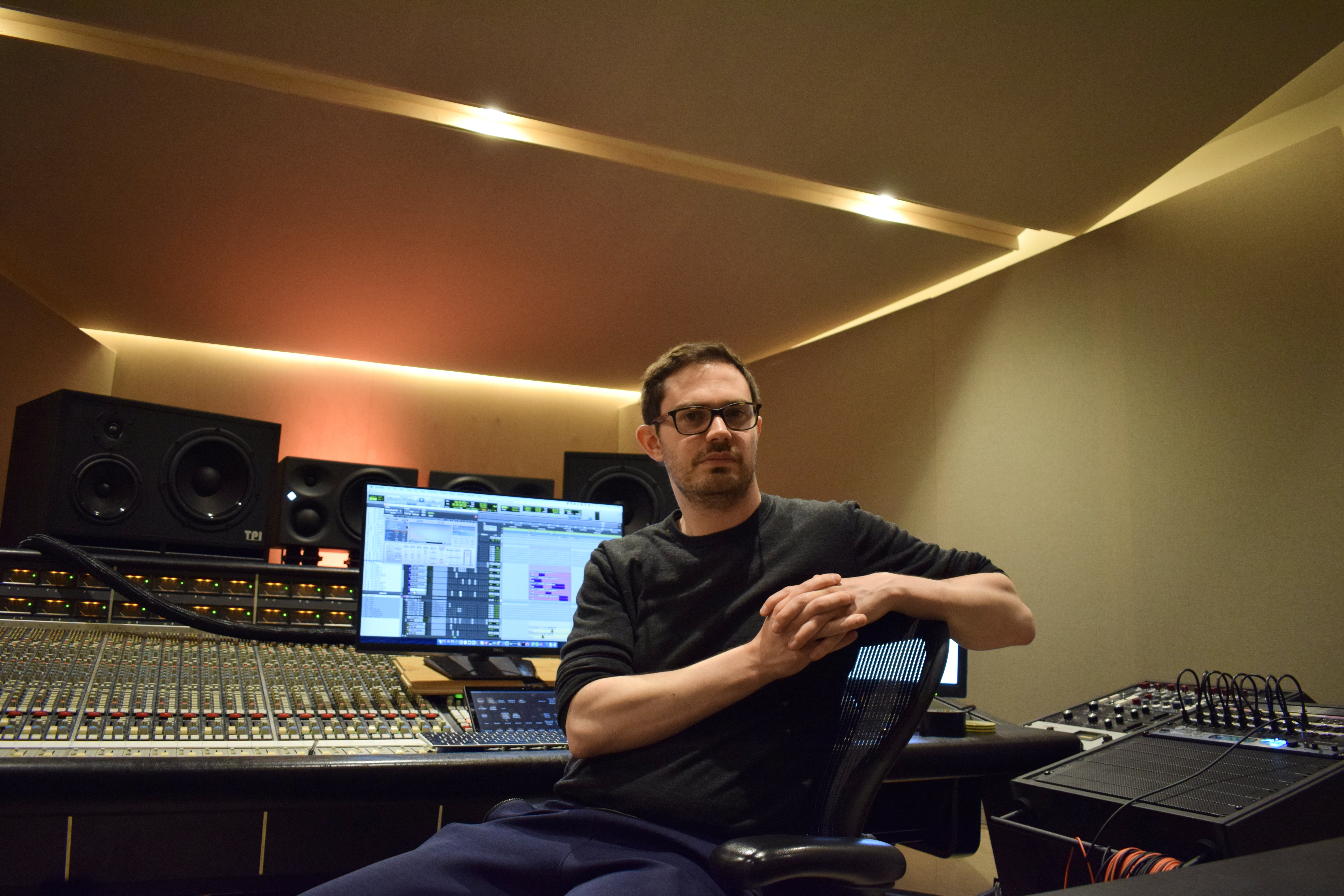
We feel very lucky to have Adam in our musical community. It was a real pleasure learning more about his process and his fascinating career journey, and we really look forward to catching him around the studios. To find out more about Adam Miller’s work you can delve deeper through visiting his Website.
At Ten87 Studios we offer long term studio hire and day hire music studios. Each recording studio is acoustically treated and sound proofed to optimise any type of audio recording and music production. We are home to a large community of musicians, producers, engineers and audio professionals working in the music industry. Our main day hire studio is a world class tracking facility equipped with the best in recording studio gear, instruments, outboard and backline. We’re based in Seven Sisters, Tottenham with easy transport links to the city centre – ideal for anyone looking for a London recording studio.
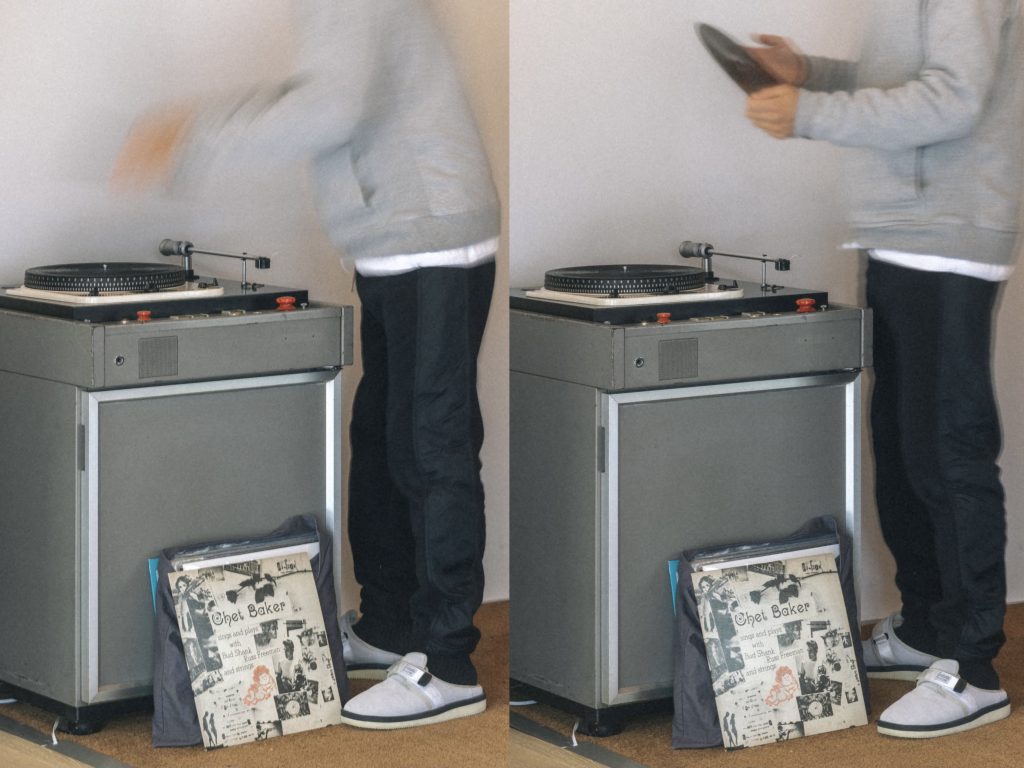
Taishi Fukuyama
Introducing Taishi Fukuyama, artist, producer and serial entrepreneur in the music/tech world. Taishi’s musical journey through many interesting projects led to him to co-found Qrates, an online platform based in Tokyo supporting independent artists to release physical vinyl copies of their music. Through the seamless online interface that Qrates provides, artist’s have full control over their release, but with the support from a team of music lovers.
How did your career in music first start?
I played in a bunch of bands while I was in high school and university, one of which became the first Red Bull Soundclash champion in Japan (now disbanded). My aspiration to become a full time recording artist unfortunately didn’t get me far enough, but I never had any other talent or interest outside of music, and ended up buying my first mac with the money I saved up waiting tables and started making beats and producing artists. I was very lucky to have been able to quickly get connected with some of the larger names in the Japanese major labels at the time. That was my early twenties.
As an artist / producer, what have been your favourite projects you’ve worked on?
I really cherish all of the records I’ve been able to work on; ranging from working in the most expensive studios in Tokyo with all of the outboard gear and vintage mics to geek out over for days and also working and recording with independent artists in my very small Tokyo apartment bedroom. One record that comes to mind is the song I co-wrote with the Korean artist BoA. She wrote the lyrics in Japanese, a message to her parents and I recall some of the candid conversations in the studio to this day.
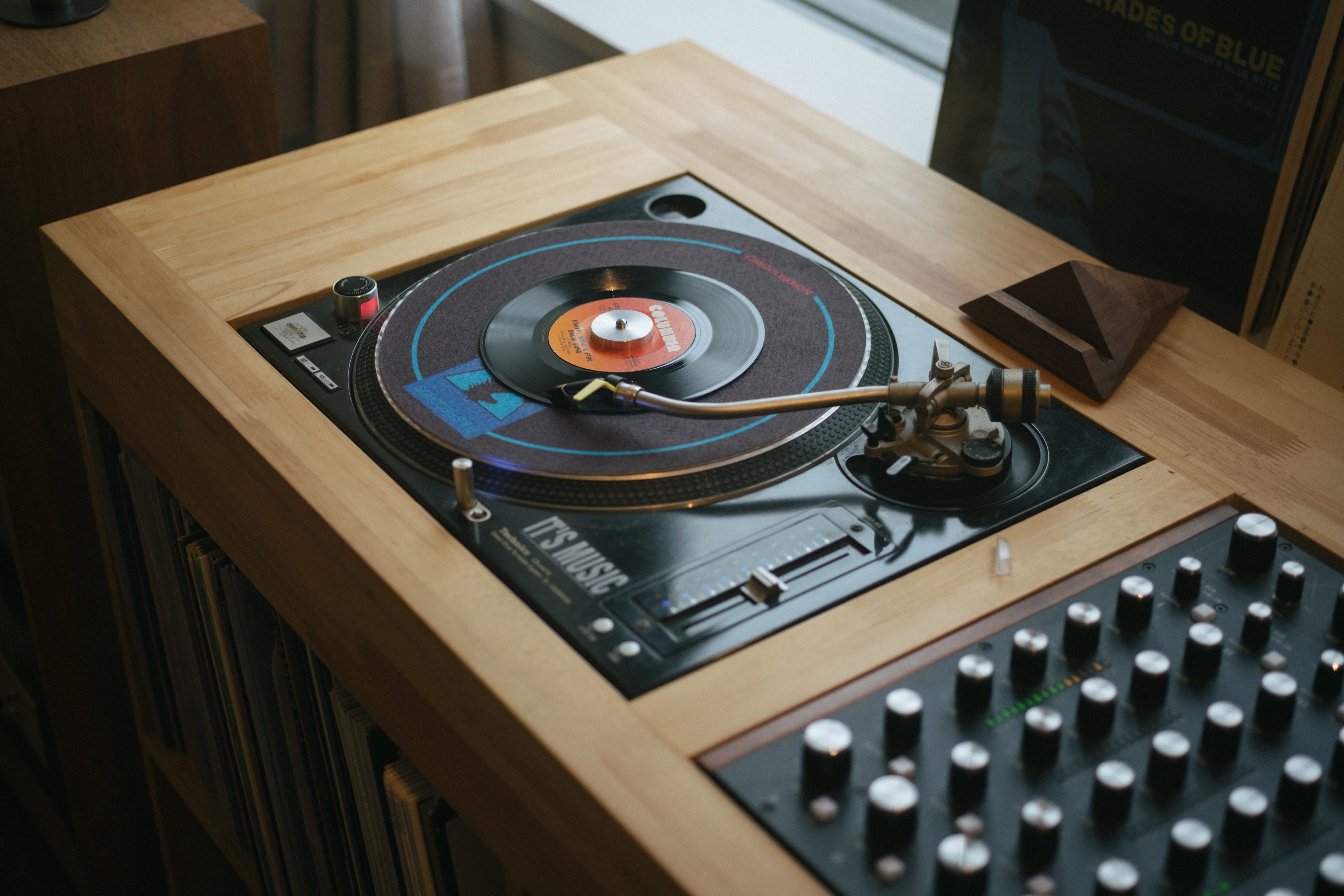
Through the various musical paths you’ve explored throughout your career, what brought you to creating your platform Qrates?
First of all, I certainly don’t take all the credit for starting Qrates. Throughout the start and ongoing journey, Qrates is a team like no other. But personally speaking, what keeps me going is seeing and feeling how music on vinyl can be the world for so many who genuinely love music. It’s like magic how music can consume and become your identity. There’s no doubt that physical sales are often less visible compared to digital, but there’s something about a vinyl record that can help get you to that magical place. It makes a huge difference both to artists and fans on many planes. I personally don’t really relate to the hardcore hi-fi audiophile world which vinyl is sometimes associated with; what music on physical means to someone can and should be different and I’m all for that.
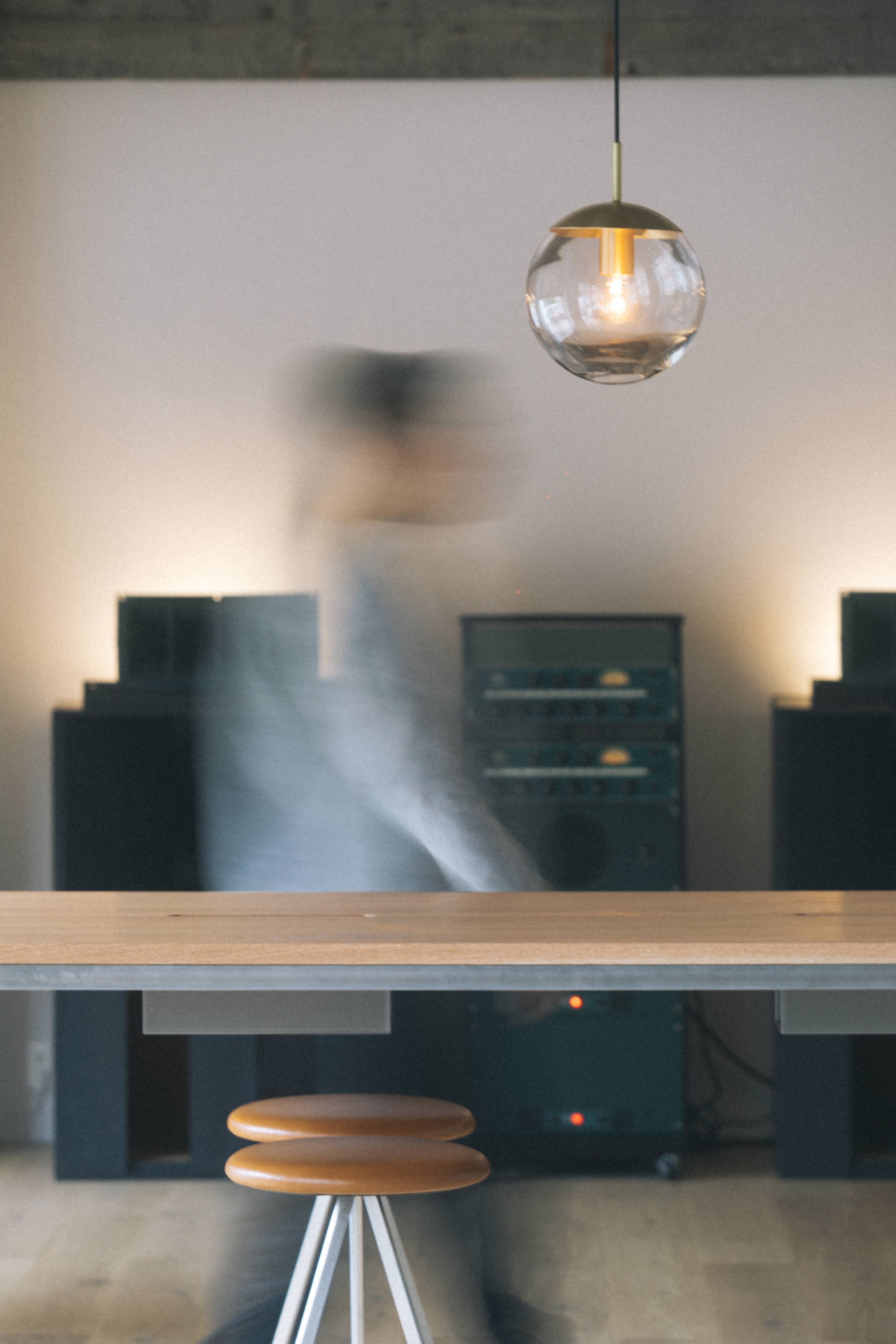
What are the benefits of artist’s releasing physical copies of their music with you over other distribution channels?
I would say 2 things. First, it’s truly a one-stop shop. From making the record, selling it, storing inventory, shipping globally, getting into retail stores, and all the artist and customer support along the way, we have an experienced team looking after your music. Second, we can also work with your distributor by supplying the records if you already have one. By selling direct-to-fan on Qrates in conjunction with selling wholesale through a distributor with Qrates, you get the benefits of economy of scale with your manufacturing.
What are the main differences you can see in how vinyl is distributed now compared to when you first started in the business?
Going further back in time, the general trend I believe was that there used to be a limited number of record titles released but they sold many. Think all of the big name reissues. Now, there are many more titles being made, but the quantity per title is fewer. We certainly contribute to this trend for sure. Since starting in 2015, every year, we have more and more artists using Qrates for vinyl and hopefully we’re looking less crazy for starting such service. In regards to some of the recent topics around big titles that “clog up” the global vinyl manufacturing capacities and independents being muscled out of access to vinyl manufacturing, I wish those independent artists and labels would come to Qrates to see what we can offer. Hopefully the physical world is not as dark and bleak as it may seem.
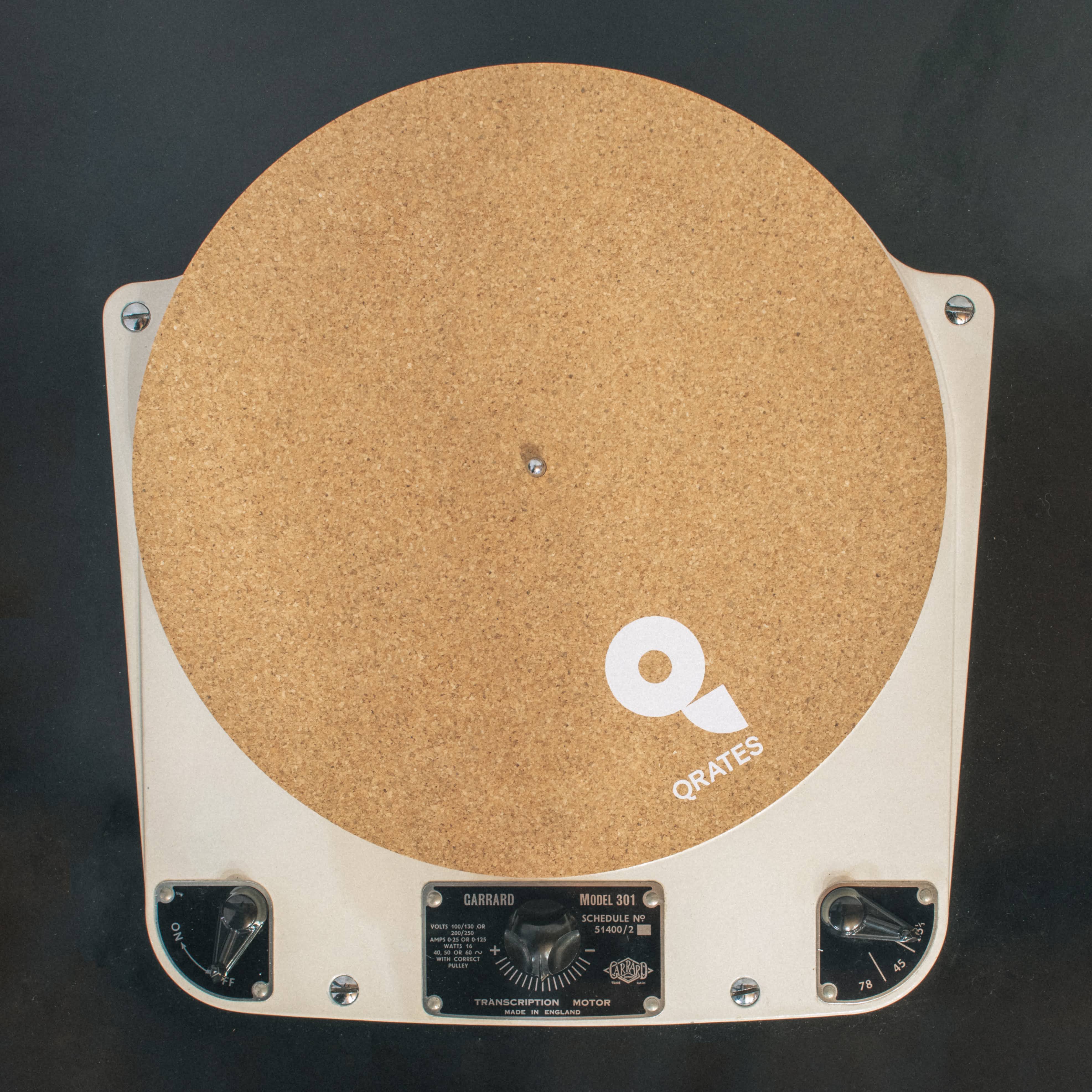
Crowdfunding is becoming a useful tool for artists to facilitate releases these days, how is this integrated into Qrates process?
Crowdfunding via Qrates is one way to finance production costs. You can also simply pay for costs up front and take orders while your record is in production too. The beauty of the crowdfunding option is not only in the fact that the artist has zero upfront financial risk, but also 2 more things. Firstly, your record is pressed to order; meaning there is no over or under ordering. Every fan that ordered your record can get a copy without you having to “best guess” the number of records to press only to have boxes of inventory lying around. Secondly, crowdfunding projects have a set duration. This creates an event. Fans can participate in this event and take home a beautiful product at the end. It’s a great way to create engagement around a release and also super limited editions of a physical product.
What are your future aspirations for Qrates?
There are many, but ultimately, we want to keep innovating in the space for music on physical, both for the independent artist and label. One recent update is, we’re now offering cassettes on Qrates. Can’t wait to see another world of artists on Qrates for sure.
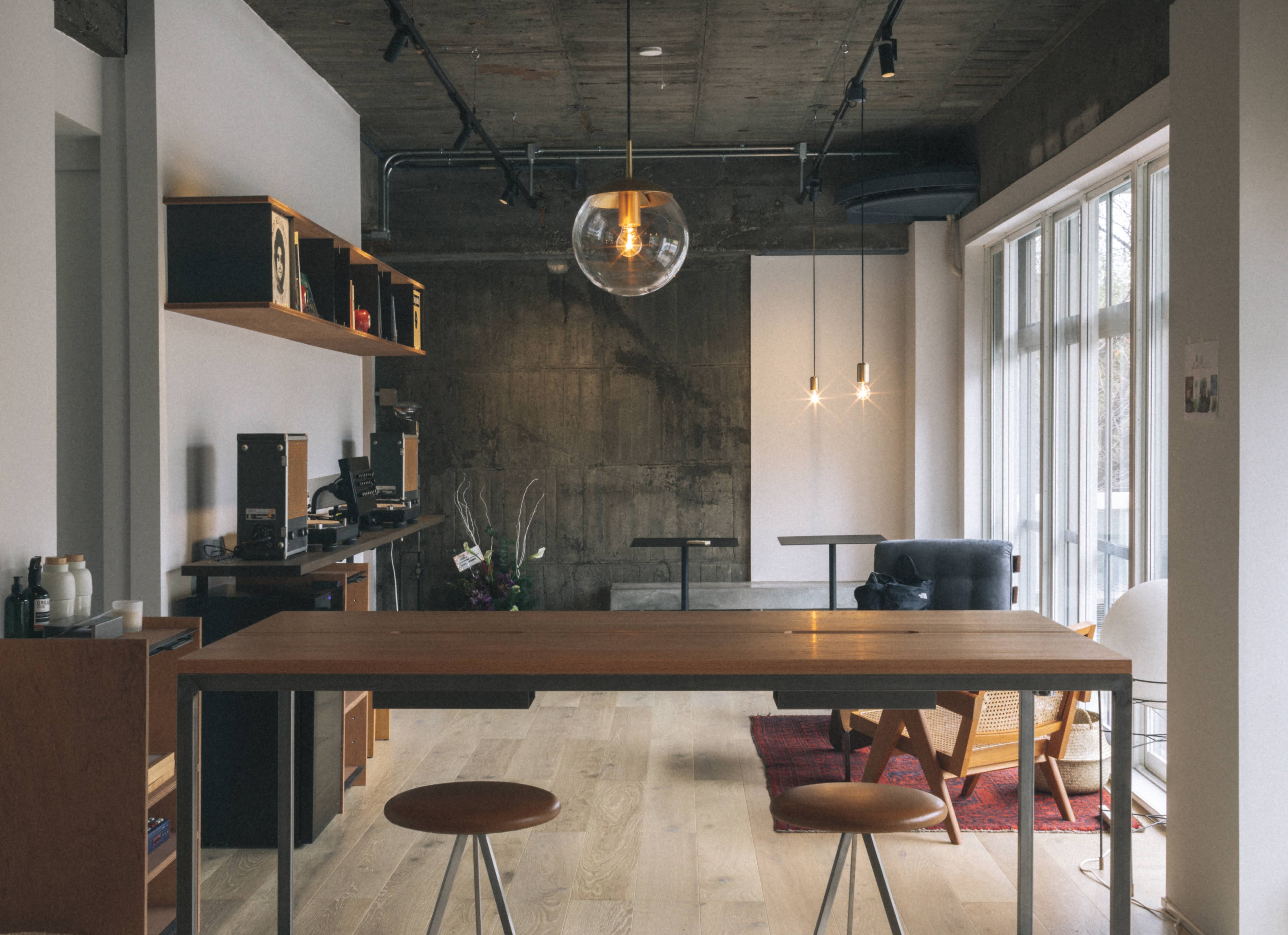
Thanks so much to Taishi for chatting with us about his endeavours in music as well as his involvement with Qrates. It’s so exciting to see the direction that Qrates is taking with the primary focus being physical vinyl release, especially in the current musical climate for independent artists.
If you are looking to do a physical release soon, Qrates are currently offering 10% off of vinyl and cassette manufacturing costs until November 10th with the code MAKEA10
We really look forward to catching up again soon.
At Ten87 Studios we offer long term studio hire and day hire music studios. Each recording studio is acoustically treated and sound proofed to optimise any type of audio recording and music production. We are home to a large community of musicians, producers, engineers and audio professionals working in the music industry. Our main day hire studio is a world class tracking facility equipped with the best in recording studio gear, instruments, outboard and backline. We’re based in Seven Sisters, Tottenham with easy transport links to the city centre – ideal for anyone looking for a London recording studio.
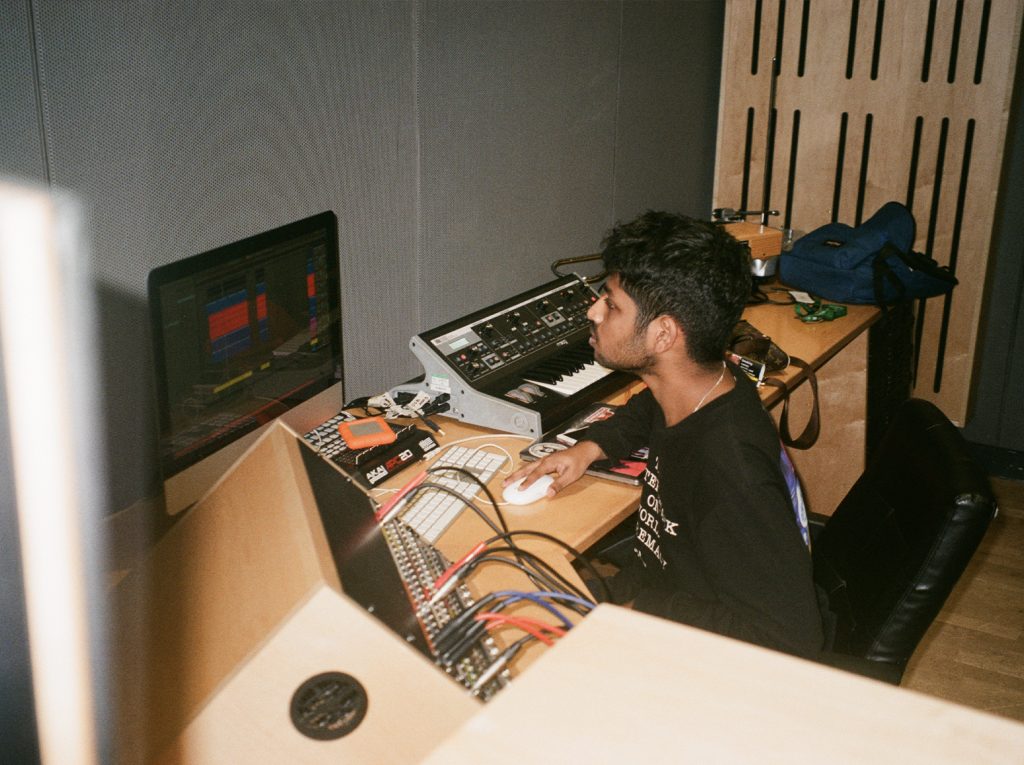
Audio Plugs
No matter whether you’re already an established producer, or just entering into the vast world of digital music production, every musician needs new toys and new bits of software to play around with. Plugins are an incredible way to create unique sounds, spark inspiration, and even stumble upon happy mistakes while learning to use them.
We reached out to some of our community members to ask them about their favourite plugins of the moment, their best features and how they come into play in their music making.
Tusks
Singer and electronic musician from London.
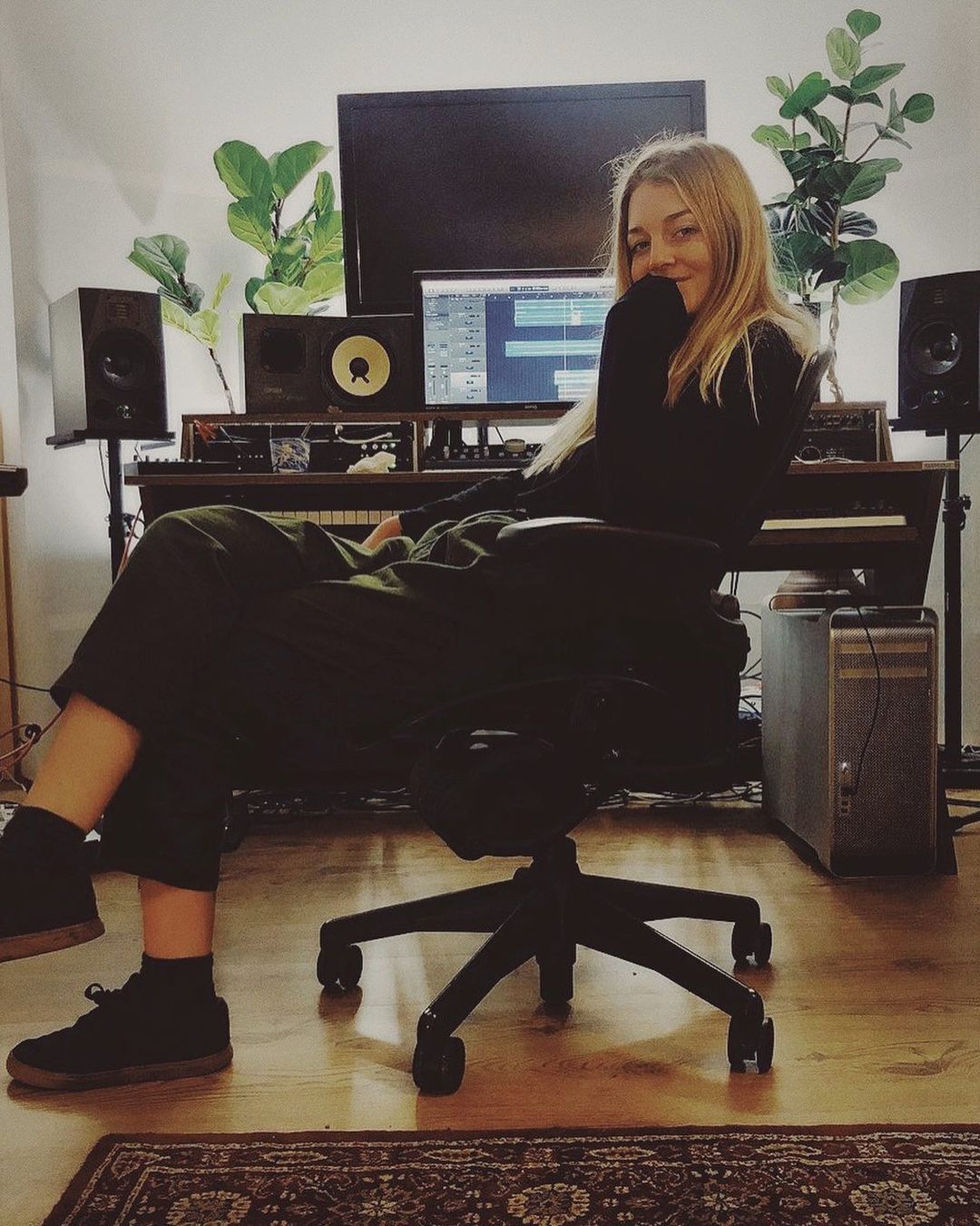
New Sonic Arts – Granite has been one of my favourite go to plugins over the last year – it’s a granular synthesiser that allows you to drag in your own samples and turns them into these beautiful glitchy ambient textures. I love how creative it can be if I’m stuck on a production or need some inspiration when writing something new. I never know what it’s going to sound like so the element of surprise and I guess collaboration with the plug in is something I find really captivating.
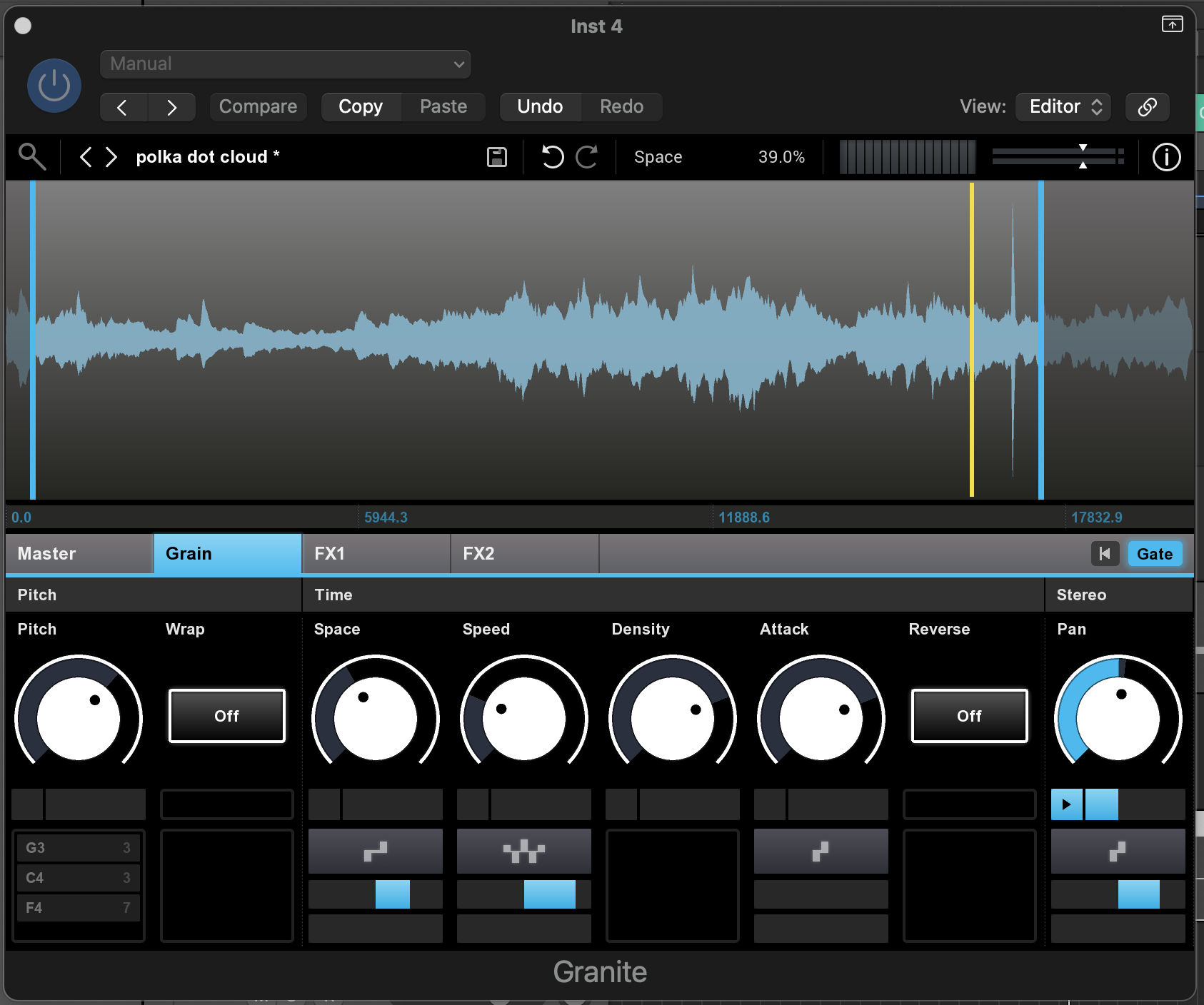
You can learn more about Tusks at www.tusksofficial.com / Instagram
Island Fox
UK-based songwriter, producer, and audio engineer.
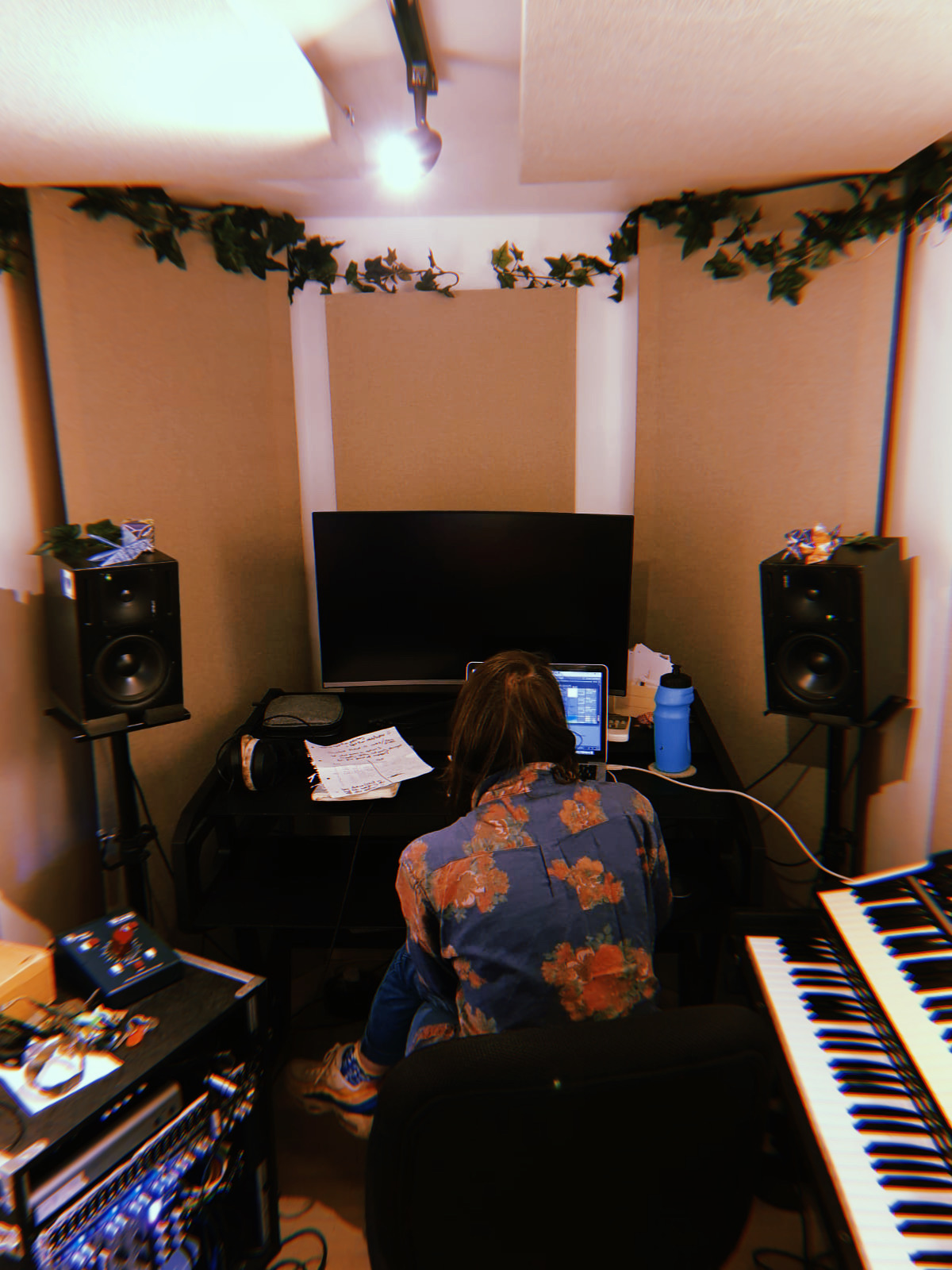
I generally tend to think of my plugins in terms of sound makers and sound shapers and it’s hard to choose one favourite. Some of my recent favourite sound making VSTs are made by the uniqueFelt Instruments. I admire their commitment to bringing totally unique sounds into the DAW and I am currently loving creating haunting halloween-esque atmospheres with the Jasno.
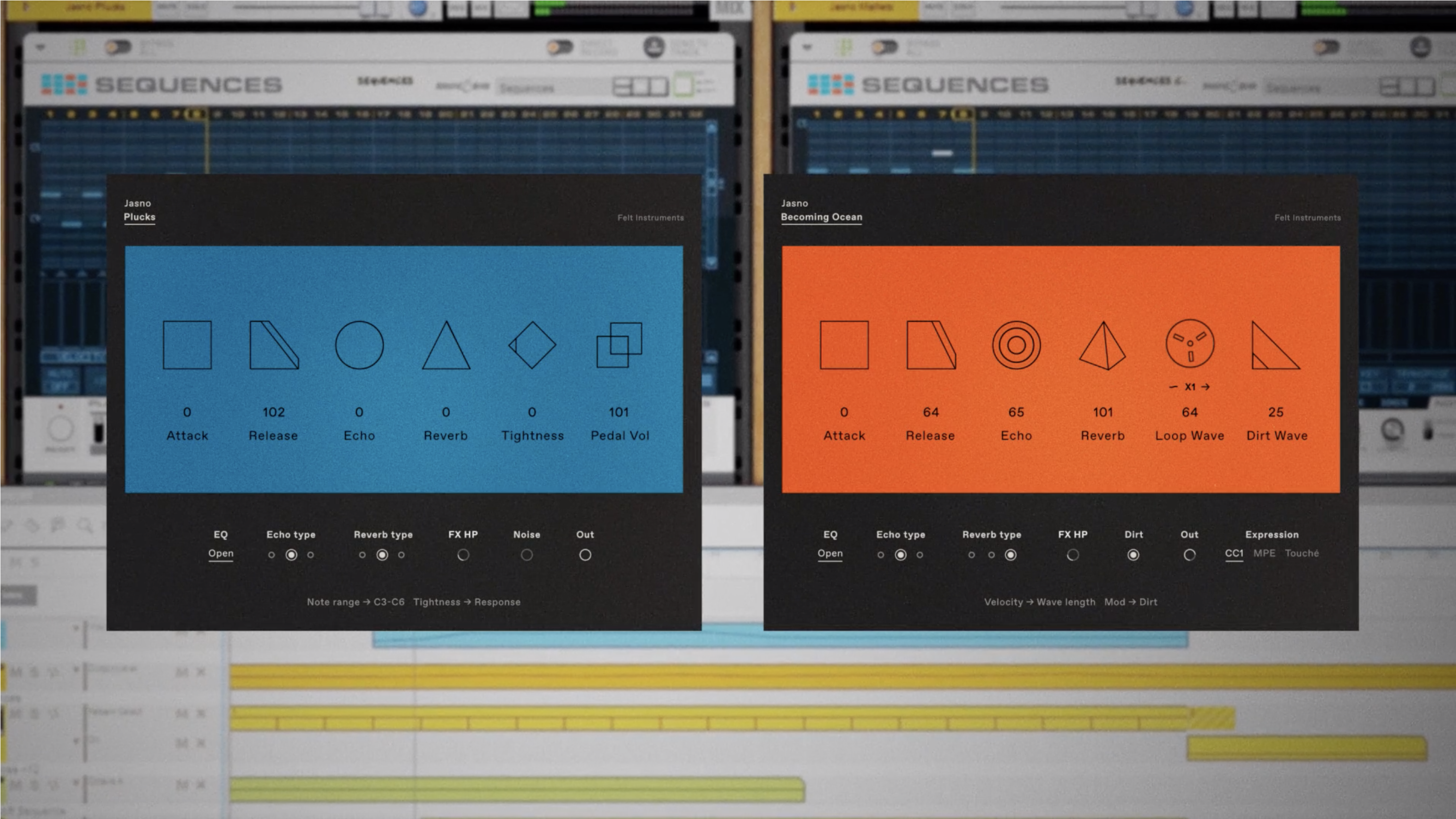
Felt have a similar ethos to Spitfire in their plugin user interface, but with the added bonus of bringing unusual and undervalued historical and hidden instruments to the world deserving to have a light shone on them. I’m really intrigued to see where they go next to be honest. I’ve also been recently integrating some hardware into my set-up and so the Universal Audio plugins have become a new staple in the Ableton chain, both on vocals and on the UDO Super 6 etc as well.
You can learn more about Island Fox at www.islandfoxofficial.com / Instagram
Charlie Deakin Davies
Pop/indie record songwriter/producer multi-instrumentalist and artist based out of London.
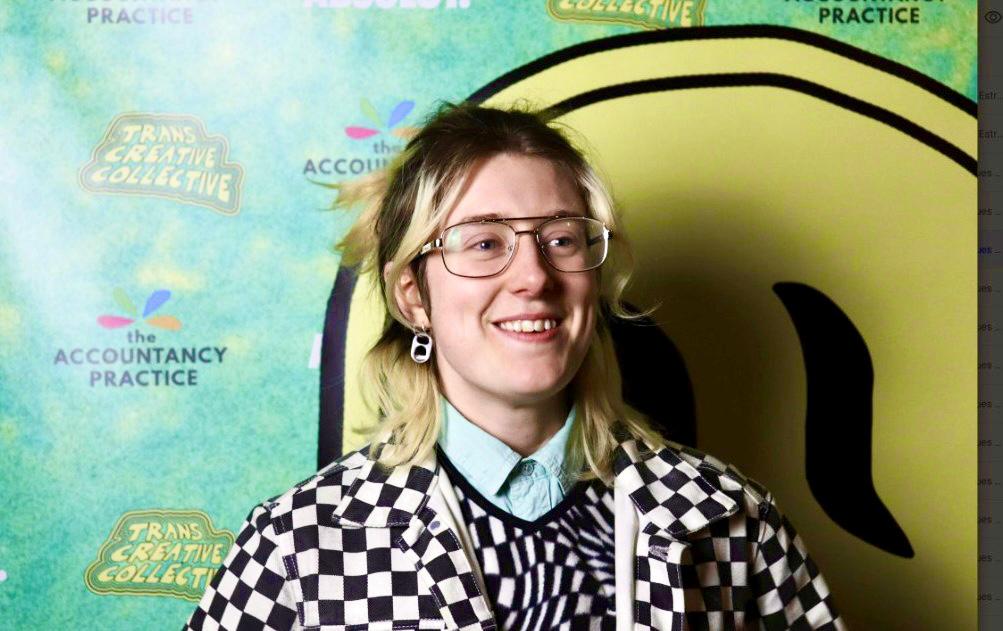
I think to start, the first plugin I’m going to talk about is pretty simple and it’s the fab filter Q3, any producer will know why this is such an important plugin. I mean any graphic equaliser really does the job but I love the dynamic compression setting that it has, and honestly their MB by FabFilter is also pretty solid, you never really stop messing around with these sort of things, especially when you understand how incredible they are and how much it can elevate so quickly!
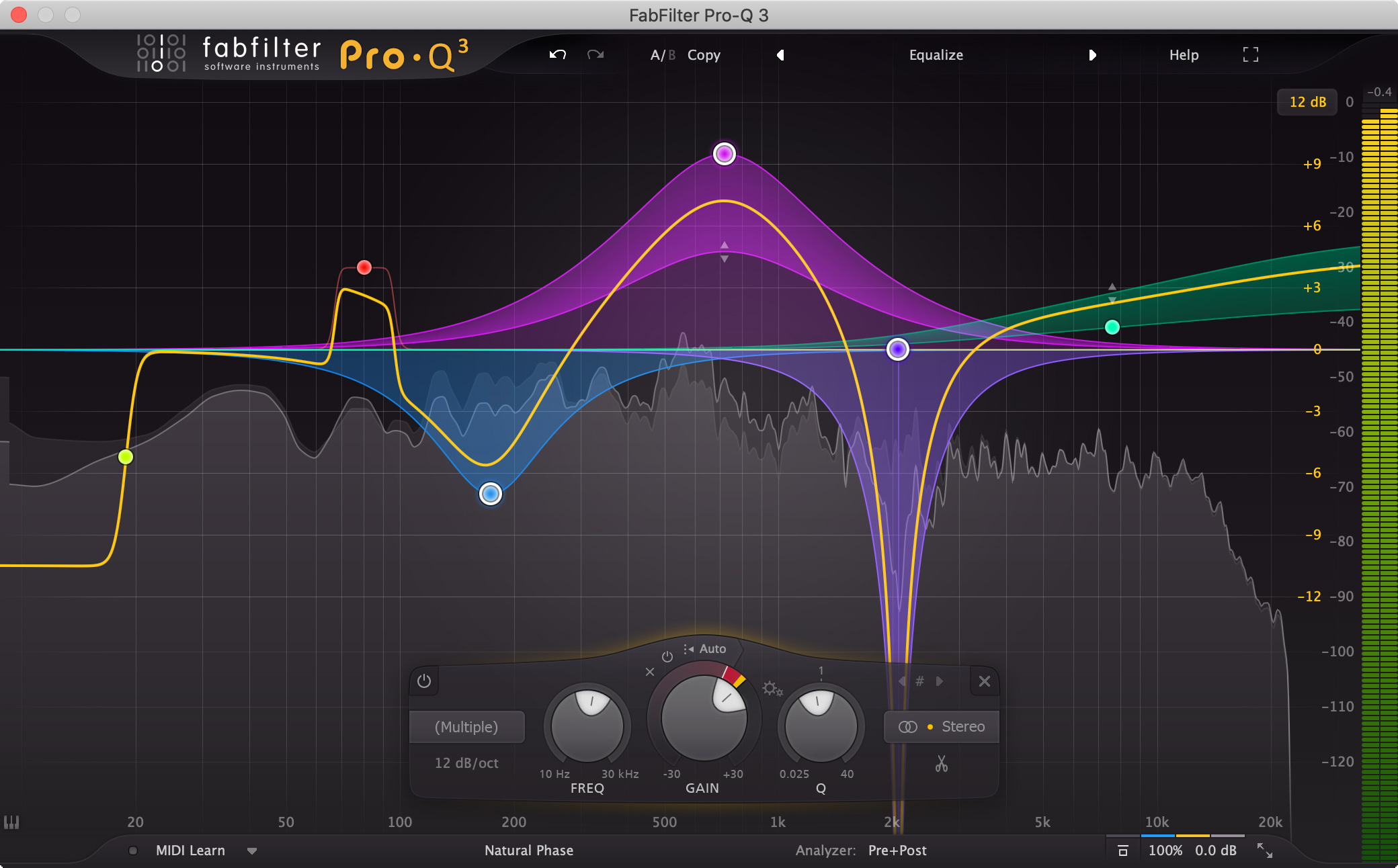
The second plugin I’m going to talk about is the Devil-Loc by Soundtoys specifically the Devil-Loc Deluxe, honestly put it on any vocal take for an alt pop track that’s got a bit of edge and instantly got an in your face compressed sound that you’ll hear on so many records!

You can learn more about Charlie at www.charliedeakindavies.com / Instagram
Sanj Shajan
Engineer / Producer
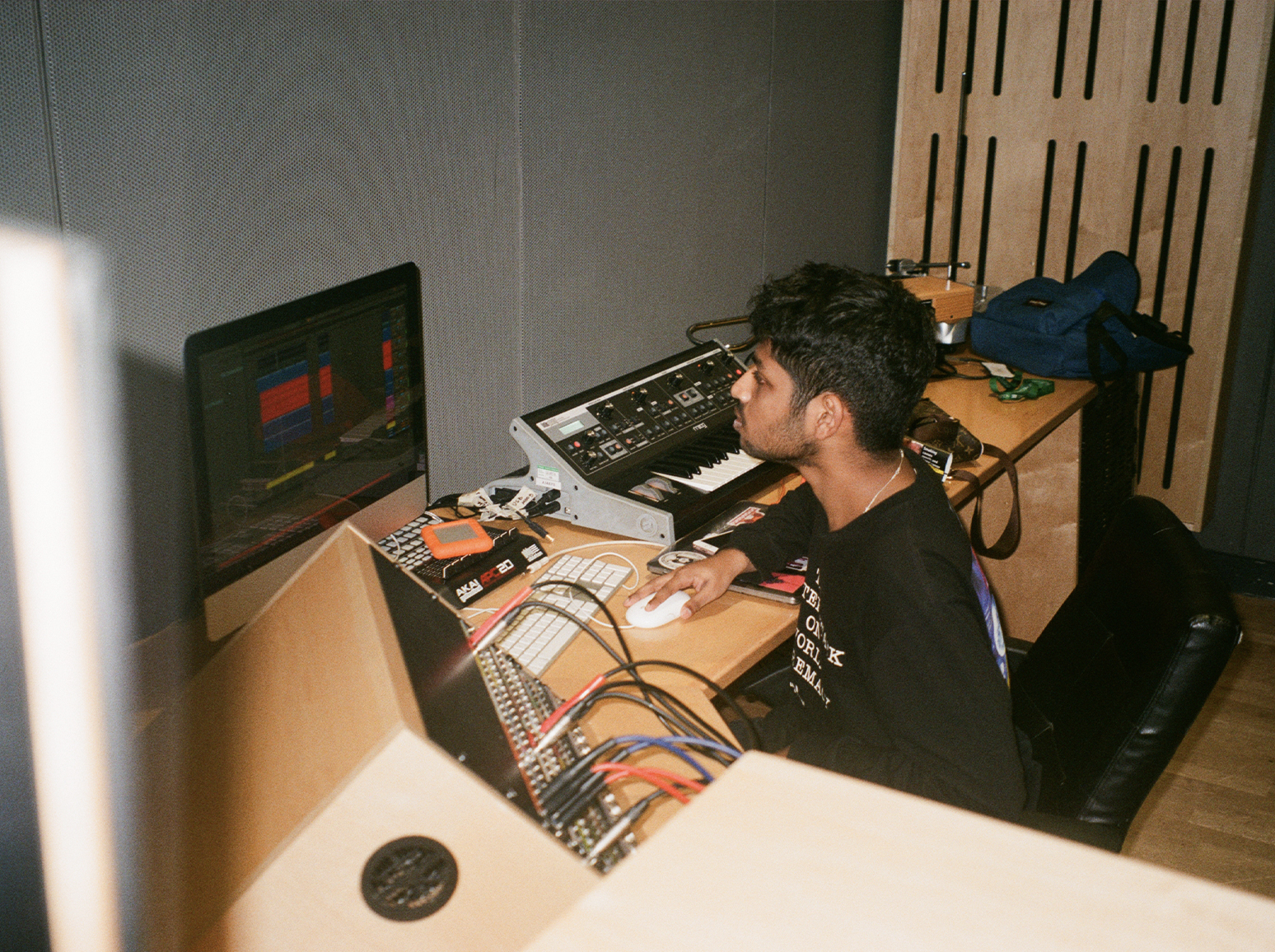
Over the last year, my go to for my distortion and saturation needs has been the Decapitator by Soundtoys. It can add a rich analog character to any track it’s on and by using the tone control, I can quickly shape the sound of an instrument often without having to go for another eq. It has five different styles (modelled around different analog tape and tube hardware) and it’s super interesting how they change the sound and feel of an instrument. My favourite button is the punish button and it’s irresistible to not use it on at least one or two tracks in a mix. The ‘Punish’ button adds a tone more gain creating interesting harmonics all over the place. I often put the decapitator on synths, guitar layers or drums to give it a little bit of the edge that it was lacking.
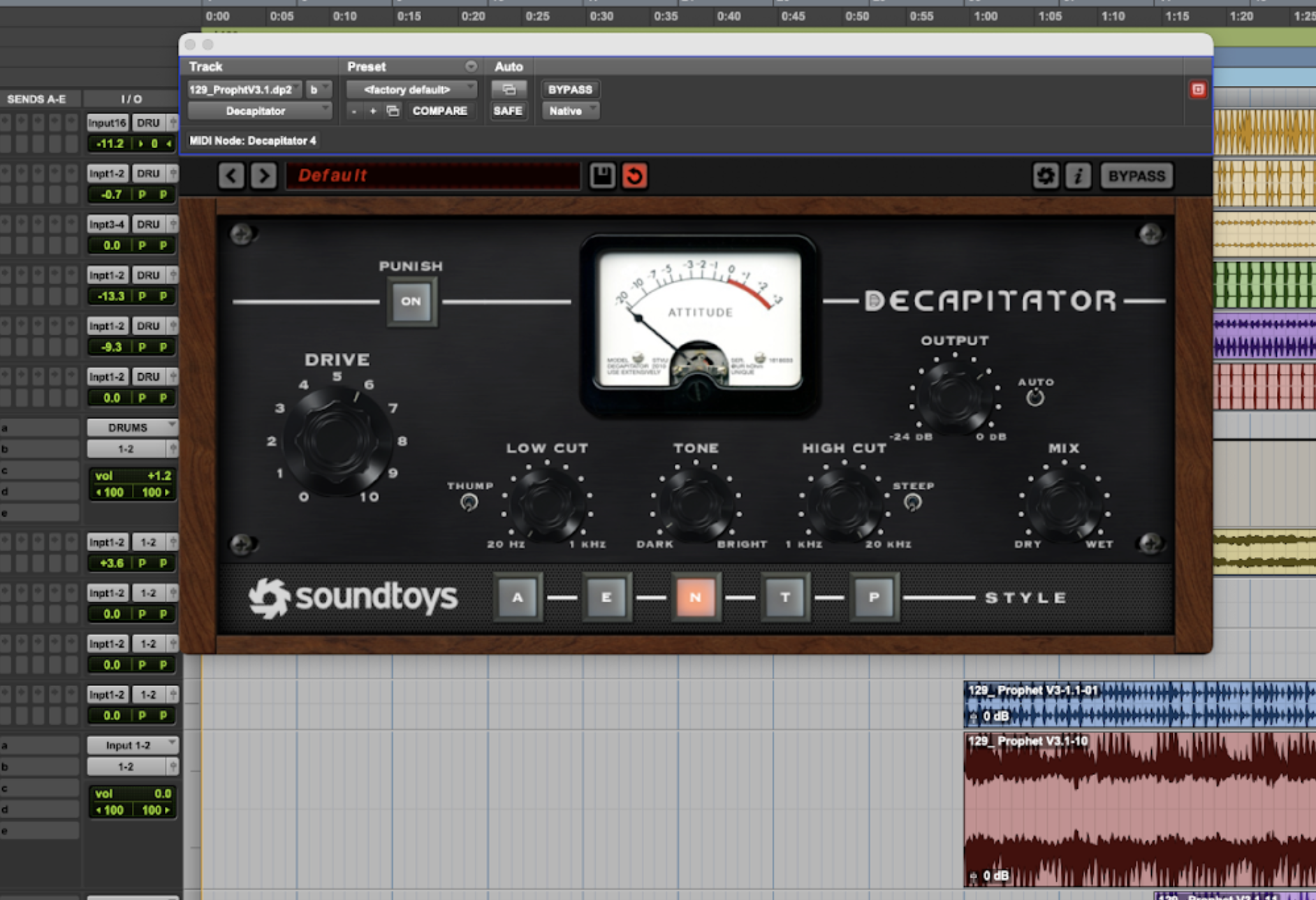
Beat Repeat is a great tool on Ableton that allows me to quickly randomise and create some cool variations on an instrument. Beat Repeat creates interesting timing and pitch variations on any track so by putting this on a synth or a sample and messing around with the chance and variation knobs- my 4 bar synth loop idea can suddenly turn into a 3 minute long piece where every few bars the synth or the sample I’m using is doing something different.
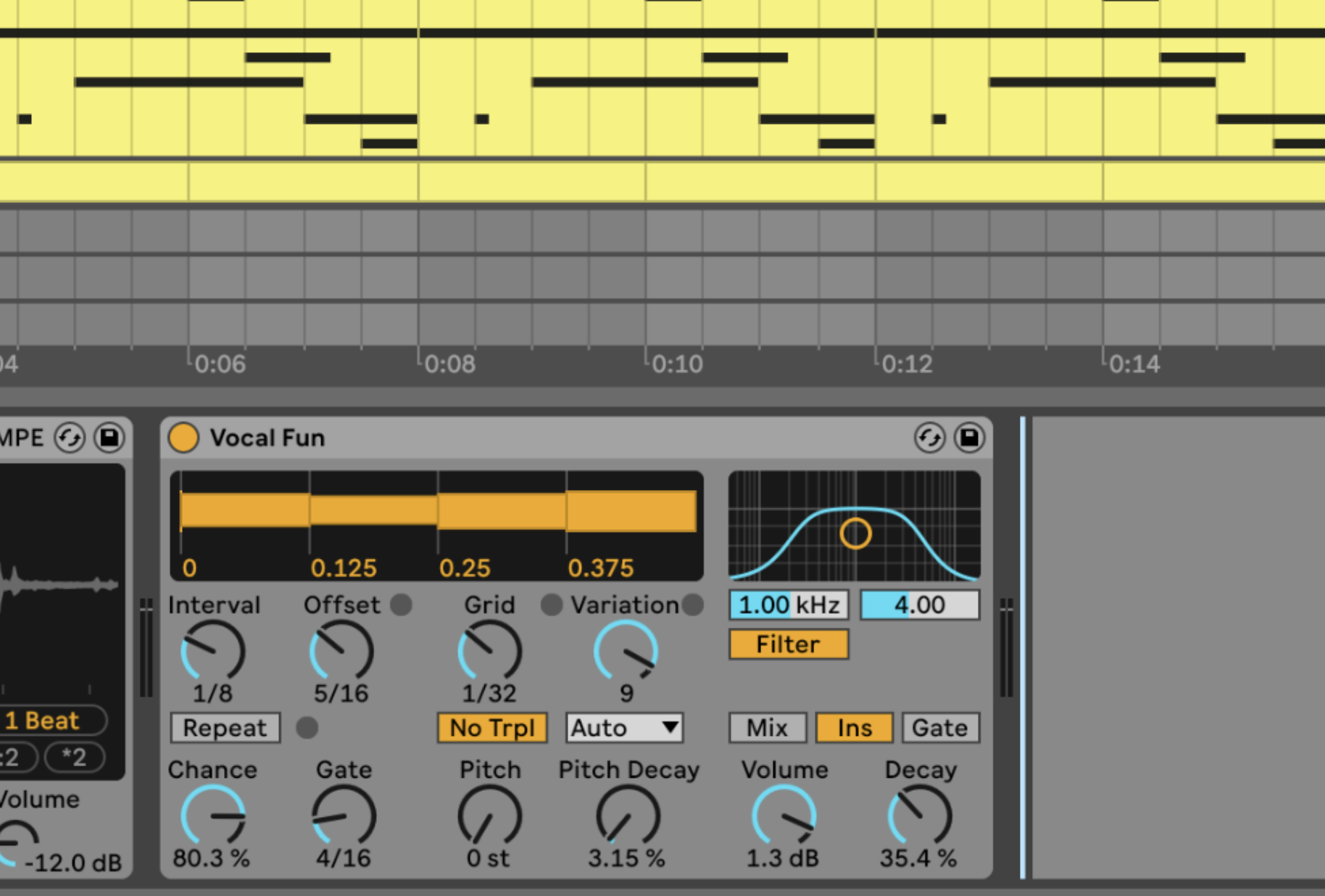
Catch Sanj around the studios or follow him on Instagram !
A huge thank you to Tusks, Island Fox, Charlie and Sanj for their contributions. Always great to learn about the features and capabilities of new plugins and get first hand insight into their creative process! Be sure to check out the plugins mentioned and share this with anyone looking for new audio toys!
At Ten87 Studios we offer long term studio hire and day hire music studios. Each recording studio is acoustically treated and sound proofed to optimise any type of audio recording and music production. We are home to a large community of musicians, producers, engineers and audio professionals working in the music industry. Our main day hire studio is a world class tracking facility equipped with the best in recording studio gear, instruments, outboard and backline. We’re based in Seven Sisters, Tottenham with easy transport links to the city centre – ideal for anyone looking for a London recording studio.
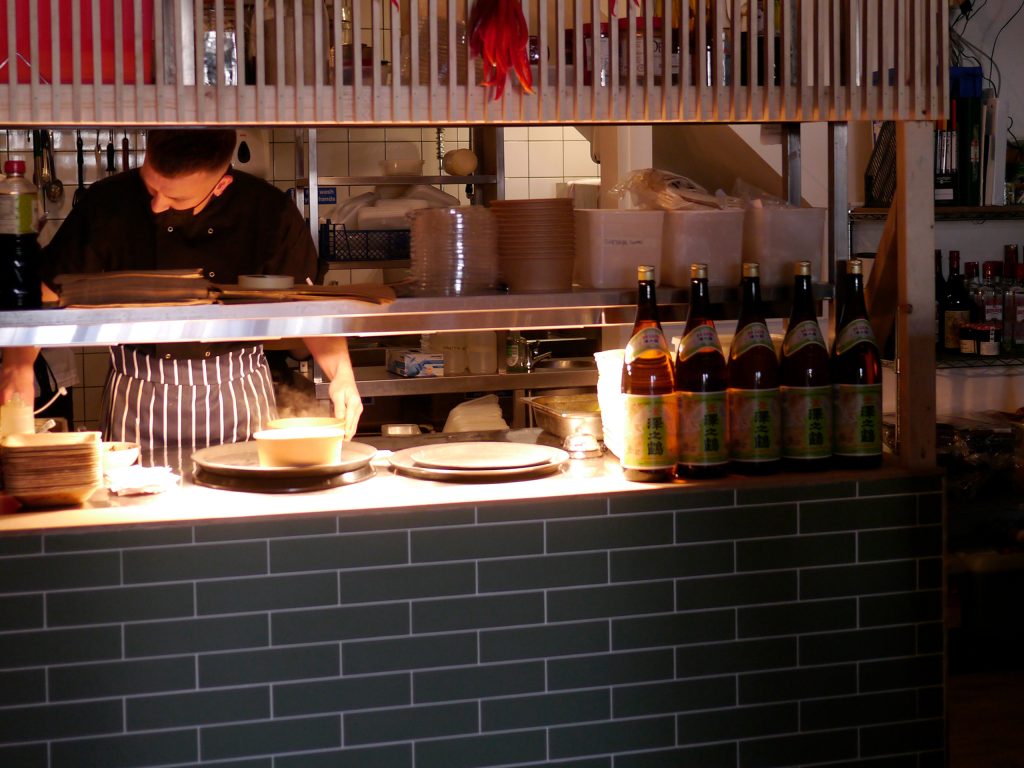
We Love Tottenham
Our home for 7 years and possibly the centre of the universe – Tottenham – or more specifically, Seven Sisters is in our opinion, banging.
We keep finding new places to eat, drink and walk and Tottenham’s been our best friend in lockdown 1, 2 and 3. Lets start by talking through a couple of spots we can’t go without that we’re fortunate to have on our doorstep.
Craving
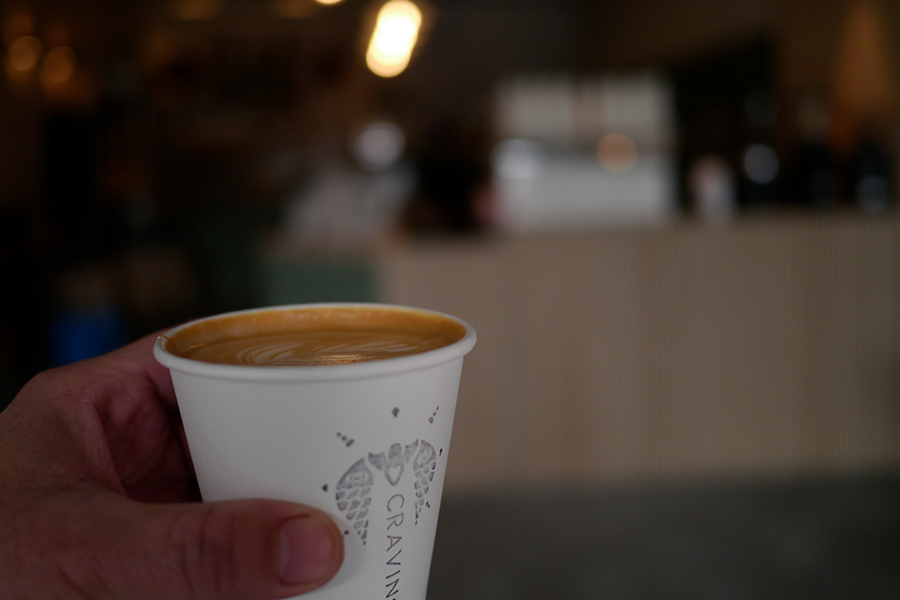
FKA Craving Coffee, Craving is London’s newest, vibiest, warmest lit venue housed inside the Ten87 walls. Artisanal coffee and baked goods by day and ramen, beer and cocktails by night. It’s no secret why we love Craving.
Zen Records
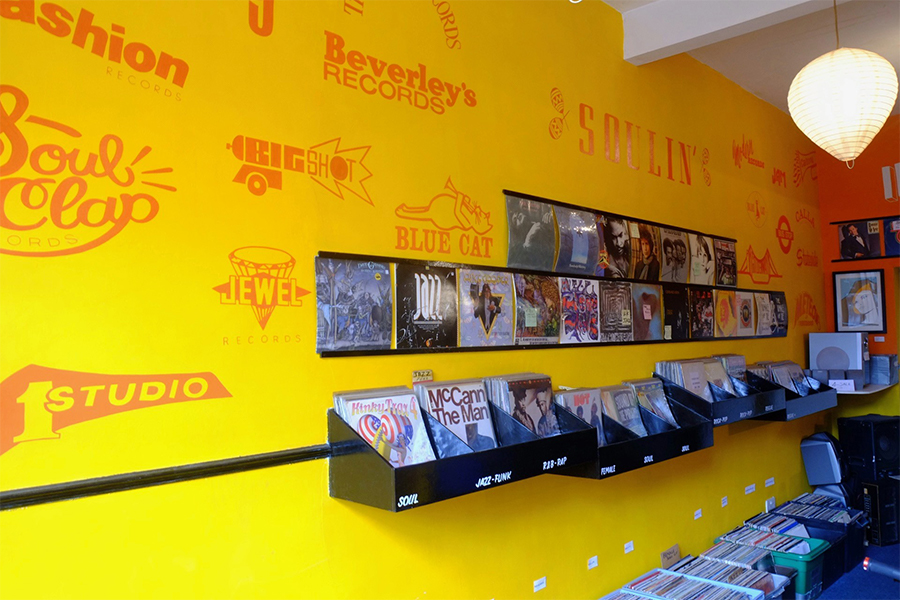
Legendary record shop specialising in Dub, Reggae and Ska sat in the middle of Broad Lane. Worth travelling across London for and not to be missed if you’re in the area.
Mannion’s
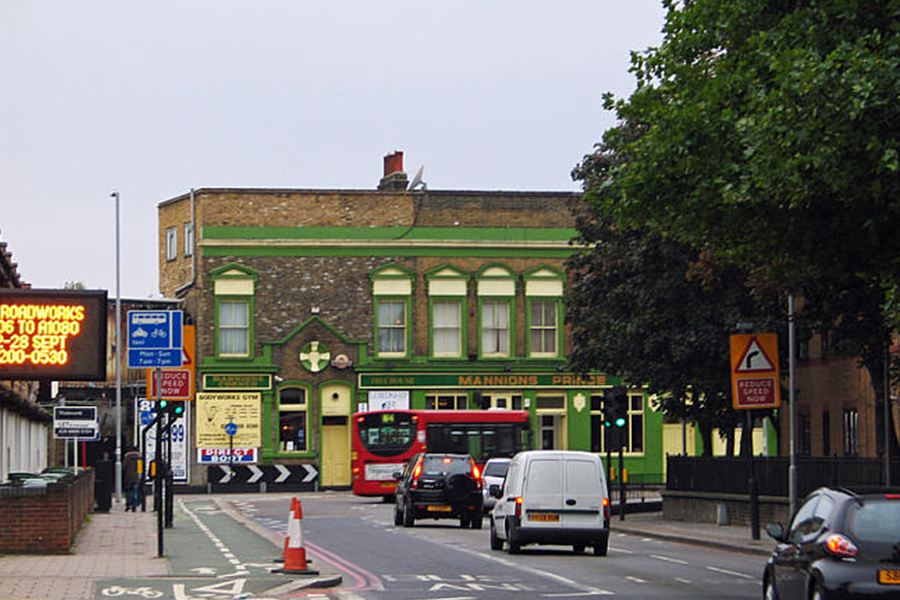
Broad Lane’s finest. Your Friday nights (and Saturday mornings) may not be the same after sampling the delights of Tottenham’s favourite Irish pub.
The Cause / Costa Del Tottenham
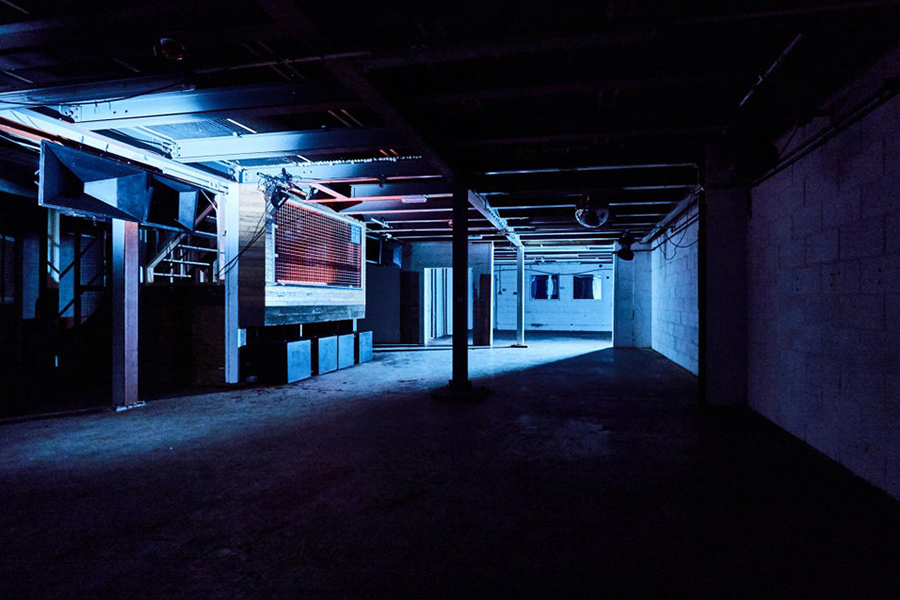
…And after Mannion’s if you want to dance off that Guinness belly we have north London’s early morning zone. Forthcoming sets from veterans Ray Keith and Ben Sims all the way to burgeoning local talent such as Giulia Tess and Eliza Rose.
Chuku’s
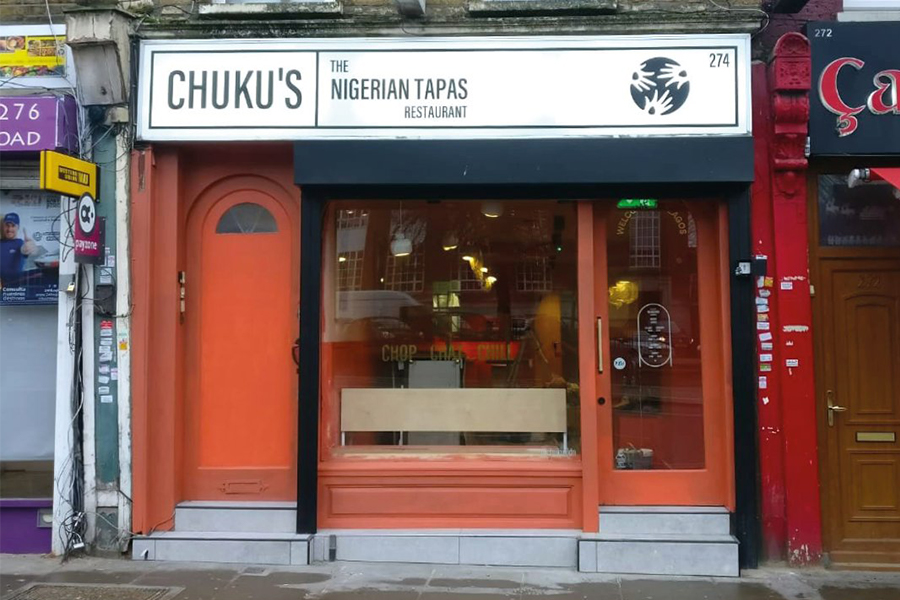
Situated on the High Road, Chuku’s is the newest spot you need to check out and serving up it’s own unique brand of Nigerian tapas – say no more.
River Lea Canal / Markfield Park

Not technically a business but we have to sneak it in…sometimes if we’re lacking a bit of inspiration it can be found in the form of swans, riverboats or a sweet DIY skate park down at our favourite local green area, Markfield Park.
If we haven’t already sold N15 to you, be sure to drop by if you’re in the area.
If you’d like to know more about becoming a member of Ten87 and being involved in the community in Tottenham be sure to fire over a message here.
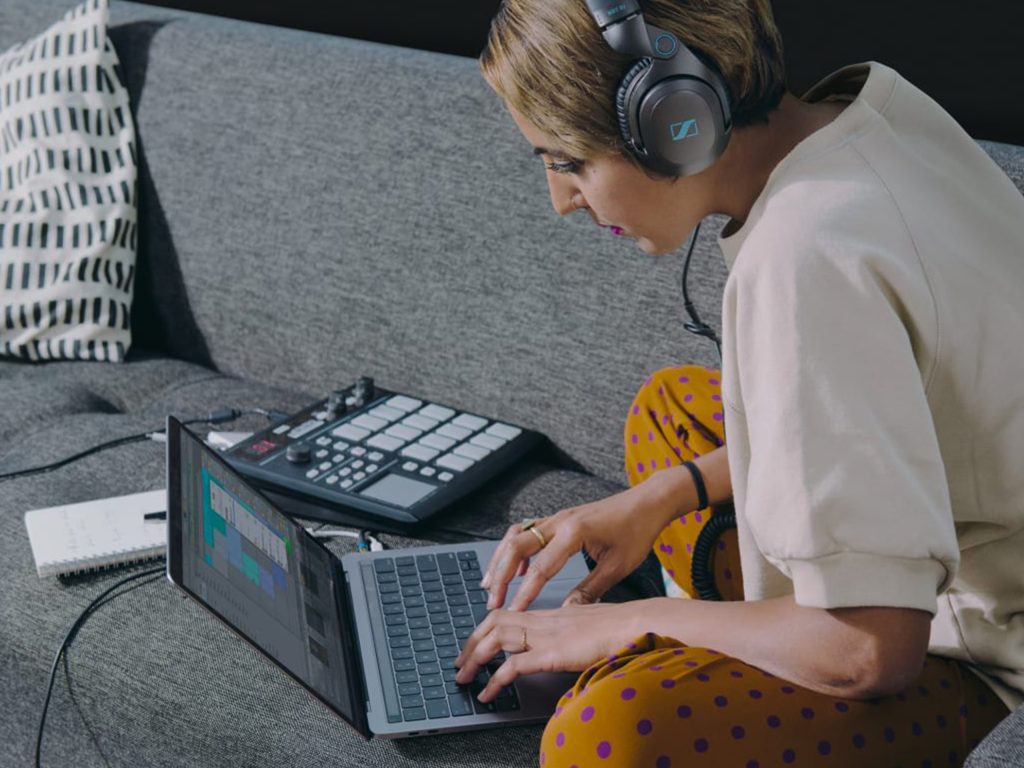
Connect to Collab
In this month’s In-depth blog, we look at 3 tools to maximise working remotely.
The music industry has gone through a pivotal shift in the past year due to the effects of the pandemic. Music makers have needed to respond to the imposed restrictions, working remotely and online. For musicians and producers, this change has come as a challenge in workflow. Luckily, new tools have been birthed from these new conditions – here are 3 we think are worth checking out.
Splice Studio
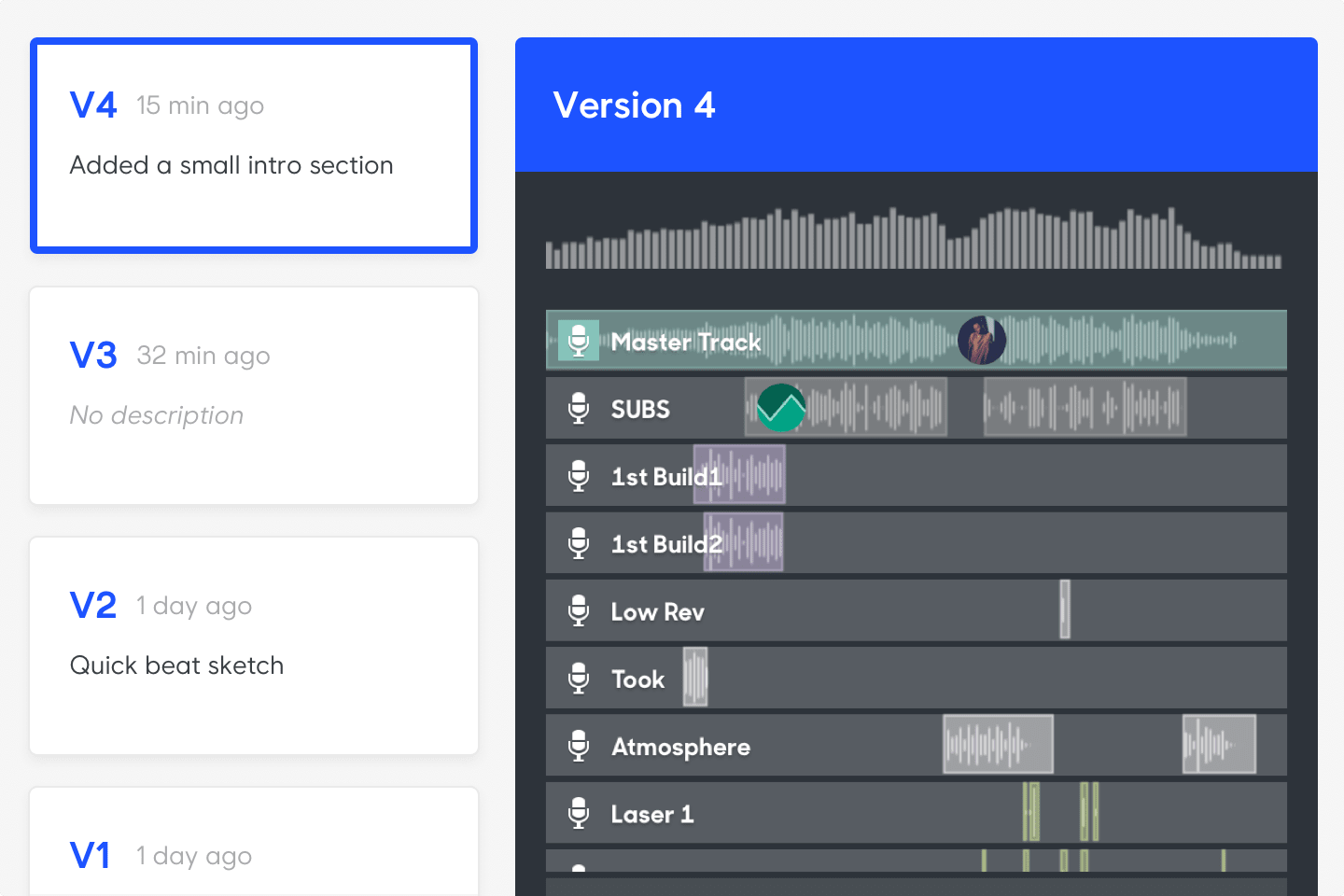
Known for their royalty-free sample packs, Splice has become a staple resource for many producers. Less known is their ‘Splice Studio’ platform, which gives users the ability to store projects online and invite others to collaborate on it.
How does it work?
Once registered, you can either create or import a new project for your DAW of choice. You can then add collaborators to the project to make edits. Each new opening of the sessions is automatically saved to the cloud and accessible in a timeline, making remote collaborating less stressful. Best of all, it’s free!
More Features
- Each version highlights BPM, length, plugins used and an overview of tracks inside.
- Add a description, comments, stems and a bounce to each version.
- Online storage keeps your hard drive free and tidy.
- Message other collaborators through the platform.
- Supported DAWs – Ableton Live, FL Studio, Logic Pro X, GarageBand, Studio One.
- Organisation: Create collections for your projects
- ‘Release on Splice’ Feature – Share a work in progress to get feedback, collaborators, or just see what the community can do with it. Share a finished song to show off your work and get remixes.
Our Take
The ability to attach stems and a bounce to each project version is very helpful for cross-platform collaboration. Unfortunately, there is a slight limitation in the amount supported DAWs, but it’s great to see variety available. One other issue is the use of 3rd party plugins unsurprisingly will not work on another computer where the plugin is not installed, though this issue is nothing new but a consideration nonetheless. The process of using Splice Studio is generally seamless, though requires downloading their app and having an internet connection to load sessions from the cloud.
Satellite (by Mixed in Key)

Mixed in Key is a plugin company offering everything from compositional tools to harmonic mixing software. Recently, they have developed ‘Satellite’, a plugin solution to the issue of remote collaboration. Satellite offers an alternative workflow to Splice’s Studio platform, by containing the session within the DAW as a series of plugins.
Like Splice Studio, the platform is also free to use, but eventually there will be a paid “Pro” level, though they will retain a permanent free tier with a few limitations.
How does it work?
Register and download from their website and setup as you would any other plugin. Three different plugins will appear, Satellite ‘Sessions’, ‘MIDI’ and ‘Audio’. Sessions is inserted onto a new MIDI channel, and acts as a portal to the online session. To begin, choose the ‘Create New Session’ option. To add tracks to the session, use the MIDI and Audio plugins on your chosen tracks; you can decide to upload every track to the session, or groups and buses as stems.
The process works by recording the selected tracks as audio and MIDI stems; simply arm the tracks in the session and hit play. Collaborators are then able to access the stems through and invite ID. A setup process is required on their end, adjusting the DAW and using the sessions plugin. They can now drag the stems out of the session and into their DAW and use the same process to upload their work.
More Features
- Sessions are saved online and accessible through the ‘Sessions Dashboard’ option.
- Sessions Dashboard lists all sessions, with last opened and last changed data.
- Name the session / stems and add key; BPM and meter is extracted from the DAW.
Our Take
Mixed in Key offers an alternative approach to remote collaboration to Splice. The benefit of this method of sharing is that cross collaboration works more effectively, by keeping the sharing of stems internal to the DAW, allowing for creativity without the worry of external plugin usage. However, the downside is that the stems are committed audio which may only lend itself to certain styles of workflow. One drawback is that you need to wait until the song is played out in order to have it recorded in the Session plugin.
LISTENTO (by Audiomovers)
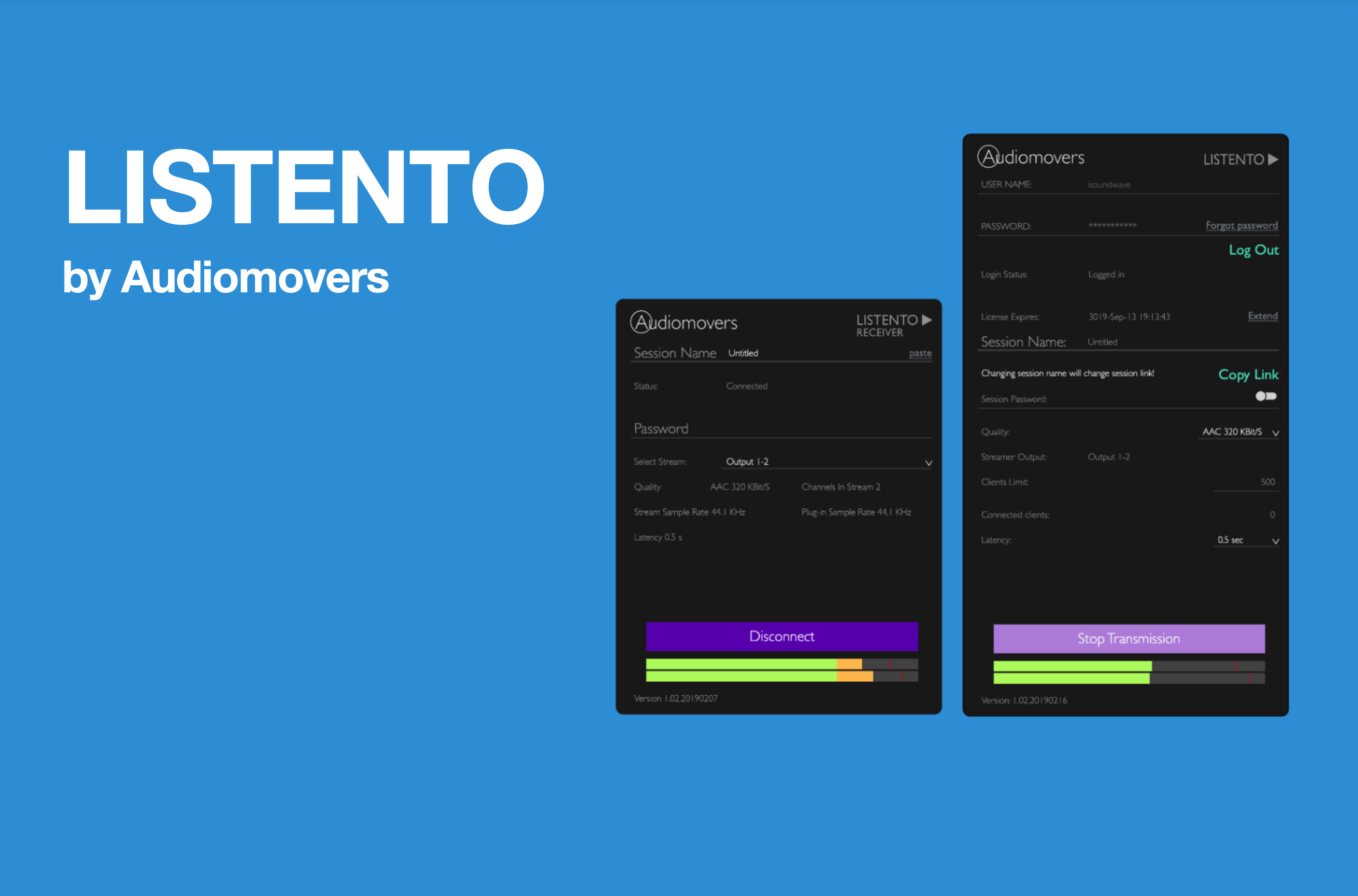
From the ex-developers at Waves Audio, Audiomovers is a relatively new company offering ‘LISTENTO’, a hi-res audio-streaming plugin capable of sending PCM 32-bit in a little as 10ms latency. Collaborators are able to stream the audio in their DAW from the host’s DAW. Unlike the previous 2, this plugin is subscription based, though you’re able to have a week free when you sign up.
How does it work?
Make an account and download from their website, and set up as you would any other plugin. There are 2 plugins available; ‘LISTENTO’ and ‘LISTENTO Receiver’. You need to log in to become a host for streaming. Simply share the generated link and configure the quality and latency; depending on your internet connection and the purpose of the stream you may compensate on a lower streaming quality for less latency, or vice versa. Lastly, start transmission to make the steam accessible to the clients (collaborators).
More Features
- 1 week free, $99 dollar yearly (weekly and monthly available)
- Plugin streams audio up to 32-bit PCM / 320Kbps AAC with up to 0.1 sec latency
- Stream access up to 40 people as standard, with upgrade options of up to 500 participants
- The receiver can be used as a plugin in a DAW, a web browser tab and accessible on ios and android.
- Use a password on the session for extra security.
Our Take
Being able to stream hi-res audio with little setup is important for many scenarios, including situations where collaborator or client is unable to do any prior setting up before a meeting. In our experience, the plugin works smooth and steady, although latency can occur when either member is experiencing internet connection issues. The process of collaboration is one way, since the audio is streamed from one source, and therefore this may only suit certain setups. We tend to use the plugin inside a DAW and additionally use a video-streaming service such as Zoom to be able to communicate in real-time. There are other solutions for this, such as sessionwire.
Depending on your style of collaboration, Splice Studio, Satellite and LISTENTO offer different approaches to your workflow. Since they’re all [mostly] free, try each one and see which one works best for your setup. Ten87 members enjoy 30% off a yearly Audiomovers subscription. Interested in becoming a Ten87 community member? Click HERE to find out more.